Gianluca Sardo Chief Operating Officer of The Glasshouse
Victoria (Vix) Reitano Founder and CEO of Agency 6B

Gianluca Sardo Chief Operating Officer of The Glasshouse
Victoria (Vix) Reitano Founder and CEO of Agency 6B
Jörg Peter Krebs Director Central Europe & Middle East, Switzerland Tourism
Julien Rio AVP International Marketing, RingCentral
Maliha Aqeel
Founder & CEO, The Ideas Collective & Chair, International Executive Board, IABC
Michael Jacobsen Founder, The Centre for Future Europe, International Business Leader & Advisor
Nancy Giordano Founder & Strategic Futurist, Play Big, Inc., Keynote Speaker & Author
CHIEF MARKETING OFFICER OF GONANO
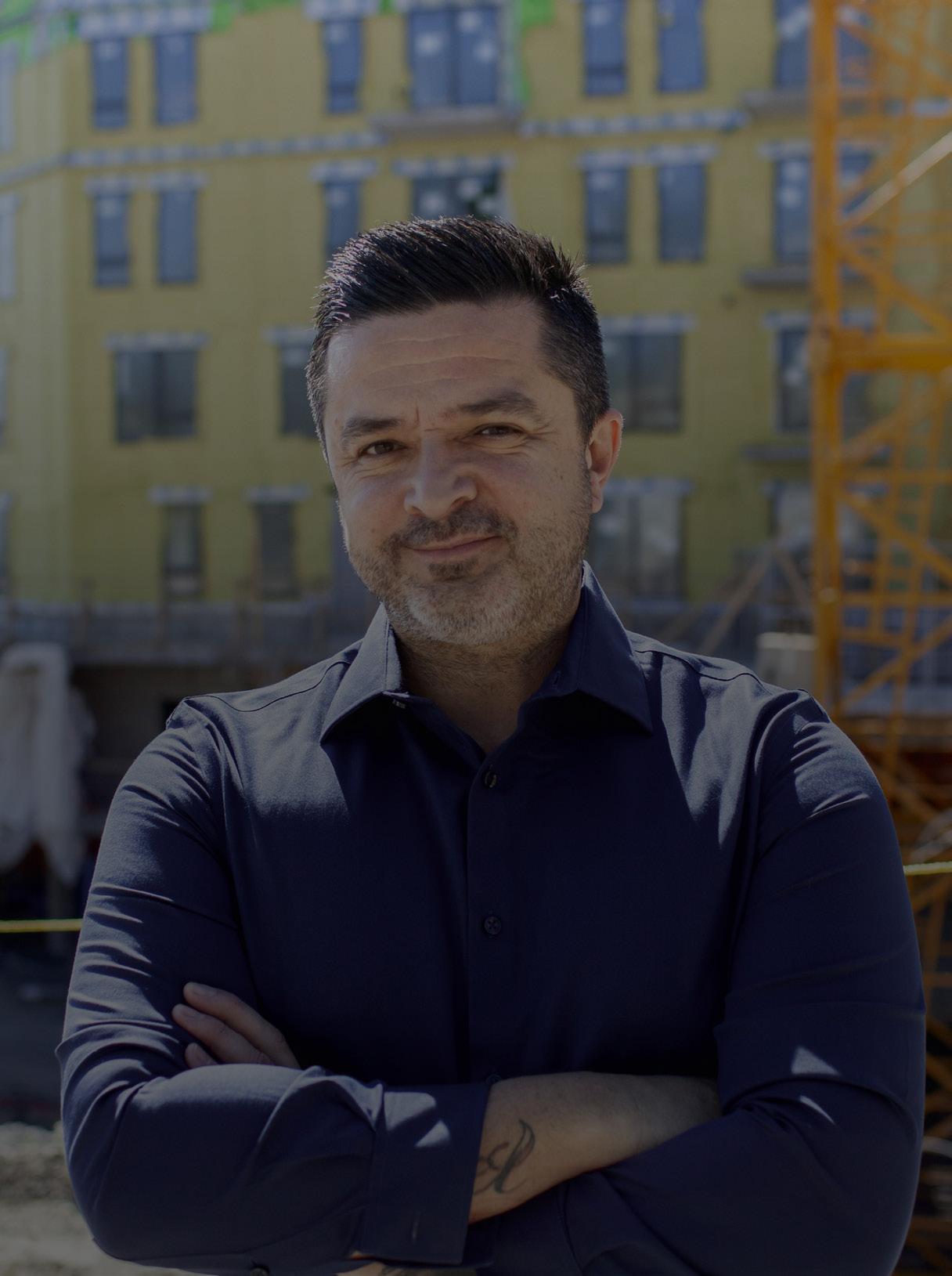
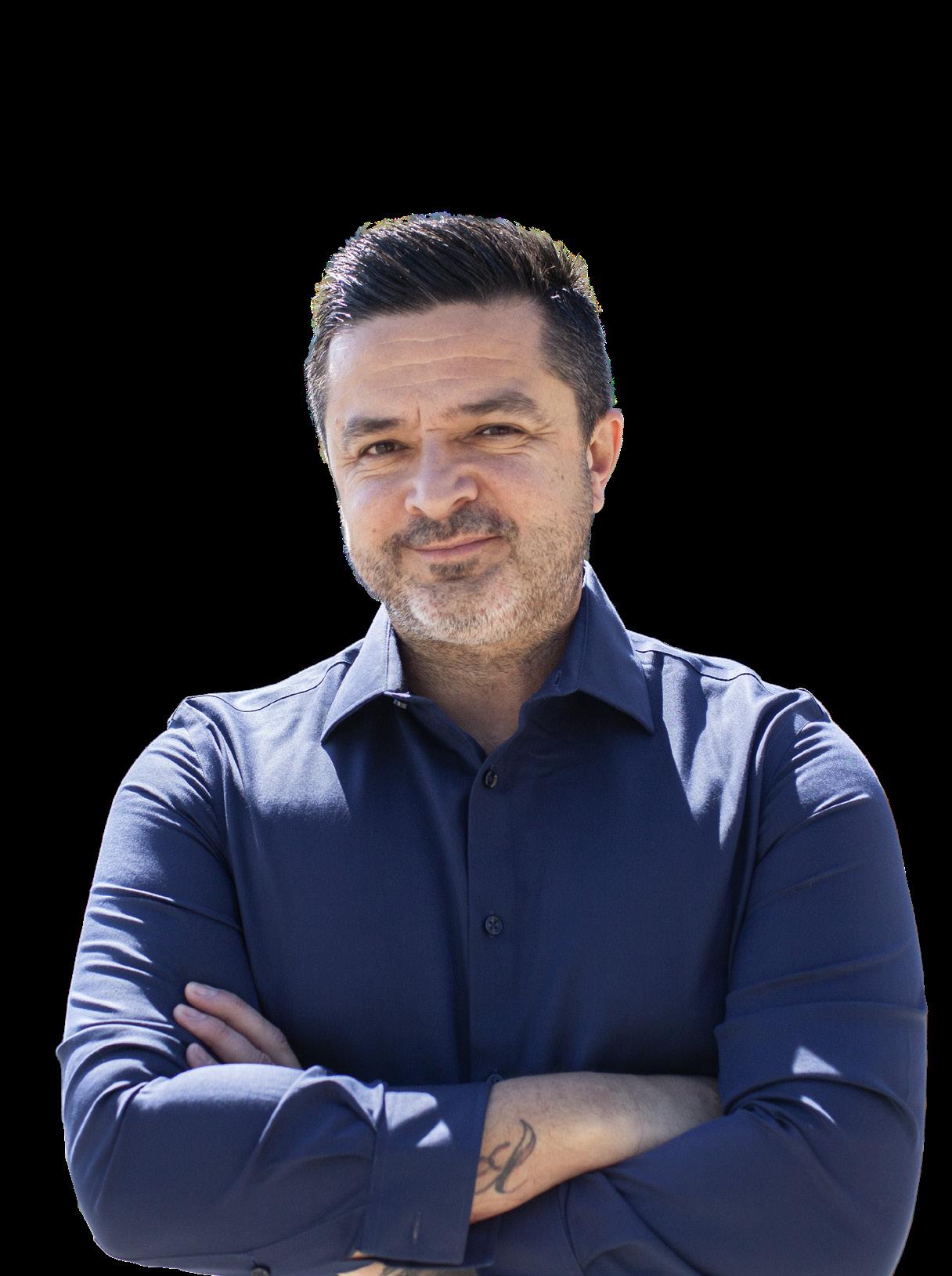




June 2024
Creative Consultants
Charlie Jameson
Louis Bernard
Managing Editor
Sarath Shyam
Branding & Marketing Partnerships
Jennifer Anderson
Monica Davis
Jessica Edword
Consultant Editors
Dr. John Andrews
Emma James
Andrew Scott
Sabrina Samson
Editorial Enquiry
admin@cxooutlook.com
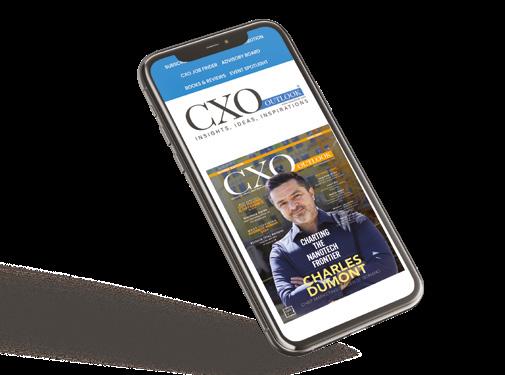
Americas
16192 Coastal Highway, Lewes, DE 19958, USA
Anna Elza
Stephen Donnell
Susan Miller
Naomi Wilson
Stanly Lui
Steve Hope
Keith Alexander
Partnerships Enquiry admin@cxooutlook.com

International Partnerships
admin@cxooutlook.com
Europe 27, Old Gloucester Street,London, WC1N 3AX, UK
Middle East & Africa
P.O. Box 48299, Dubai Silicon Oasis, Dubai, UAE
Asia-Pacific
Ramanashree Arcade, 18 MG Road, Bangalore, India
CXO Outlook is a digital magazine published by Connecta Innovation Private Limited. All rights reserved. The opinions expressed in the content and pictures provided are those of the authors. They do not purport to reflect the opinions or views of the Connecta Innovation Private Limited or any of its members and we do not assume any responsibility. The publisher does not assume any responsibility for the advertisements, its content, pictures, and all representation of warranties made in such advertisements are those of the advertisers and not of the publisher. CXO Outlook is a Free Subscription digital magazine strictly not for sale and has to be strictly for internal private use only. Publisher does not assume any responsibility arising out of anyone printing copy of this digital magazine in any format and in any country and all matters related to that.
Remember the days when marketing was all about catchy jingles and flashy billboards? Times have certainly changed. Today, marketing goes far beyond just selling products. It's about crafting stories, building connections, and sparking innovation. With technology evolving at lightning speed, marketing now incorporates advanced analytics, AI, and even augmented and virtual reality. It's a thrilling yet challenging landscape that calls for visionary leaders who can steer through this complexity.
This brings us to the latest issue of CXO Outlook, where we spotlight the Most Influential CMO to Watch in 2024. This edition highlights how crucial strong marketing leadership is in a world where customer expectations are sky-high and competition is fierce.
Our cover story features Charles Dumont, a marketing veteran with over twenty years in the field. Charles has been a
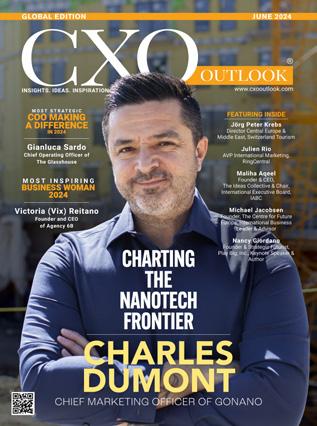
game-changer in the automotive sector and now serves as the Chief Marketing Officer for GoNano in The Americas. His knack for driving successful sales and marketing strategies has not only boosted GoNano’s success but also set a high standard in the industry. Charles is the epitome of the modern CMO— agile, visionary, and relentlessly committed to excellence.
Inside this issue, you’ll find a wealth of insights from top industry
experts and thought leaders. They dive into everything from the latest tech trends in fashion to strategies for managing organizational change in today’s fast-paced market. Each article is carefully crafted to give you a deep understanding of the current trends and innovations at the crossroads of business and technology.
We believe the stories and strategies shared in this issue will inspire you and provide practical insights for your marketing endeavors. As we celebrate trailblazers like Charles Dumont, we also look forward to seeing how marketing leadership will continue to evolve and shape the global business landscape.
We hope you enjoy this edition of CXO Outlook and find it both enlightening and engaging. Thank you for joining us on this journey to explore and highlight the transformative power of marketing in today’s world.




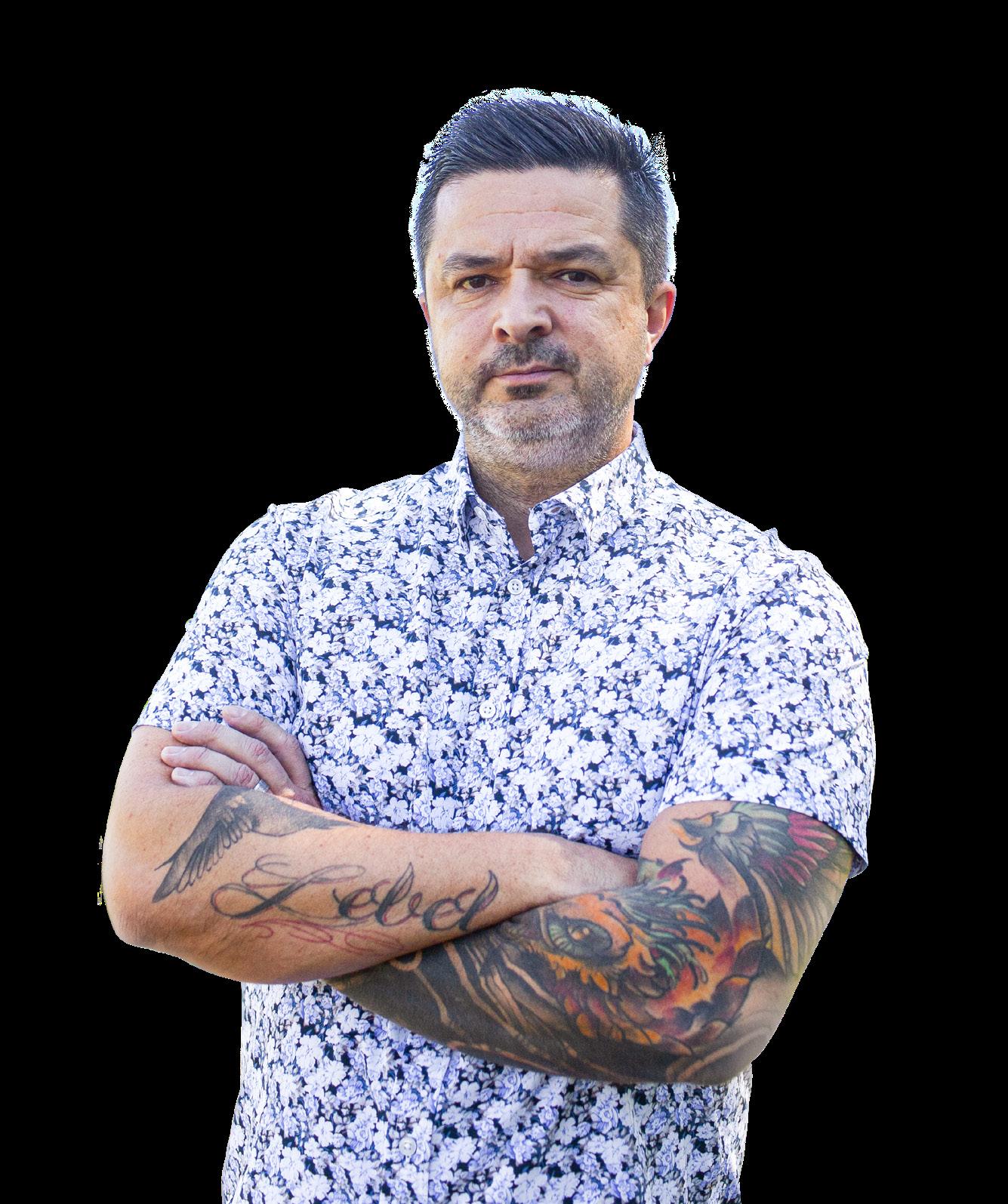
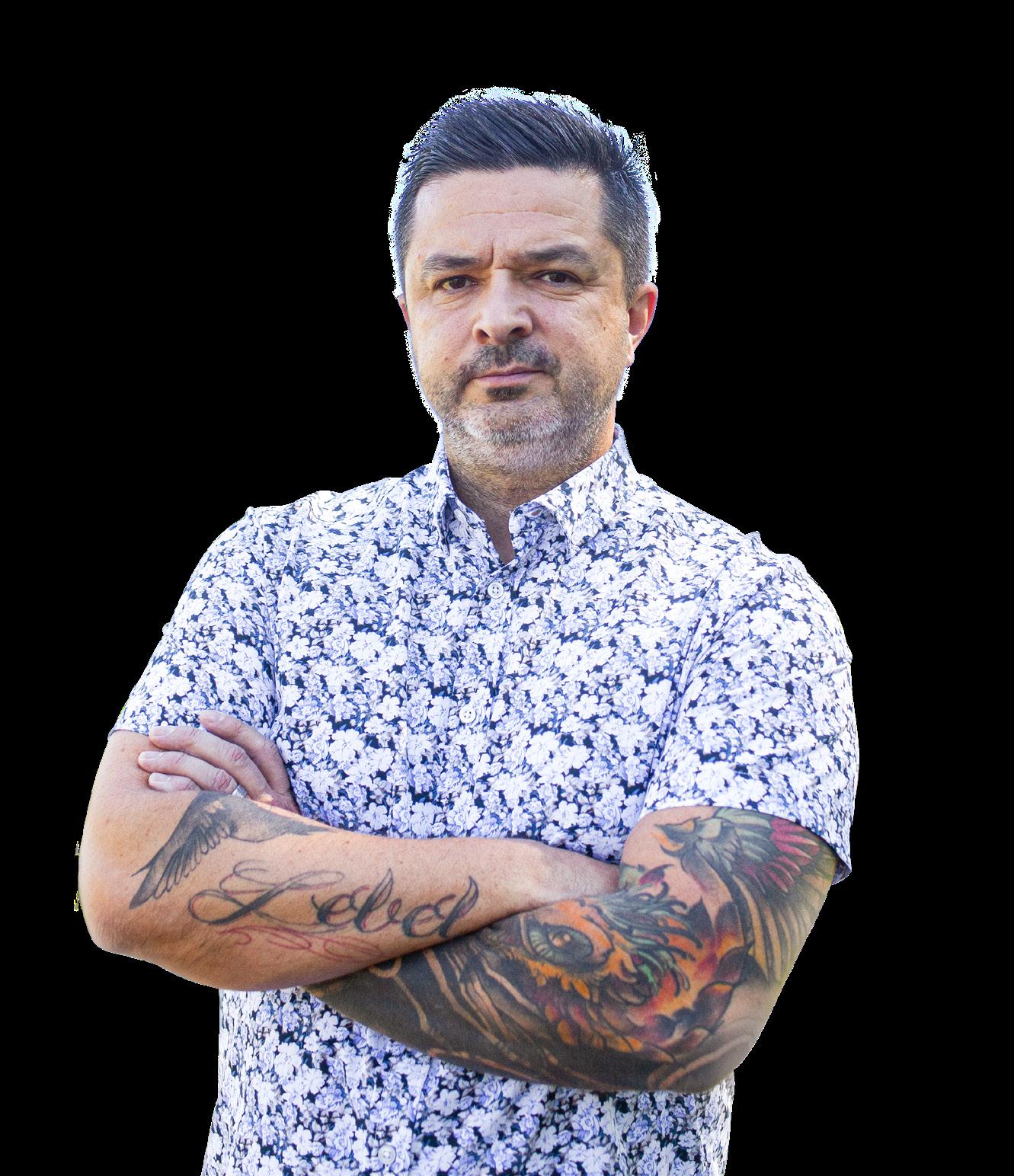



Fostering Innovation, Excellence, and a Collaborative Work Environment Chief Operating Officer of The Glasshouse MOST STRATEGIC
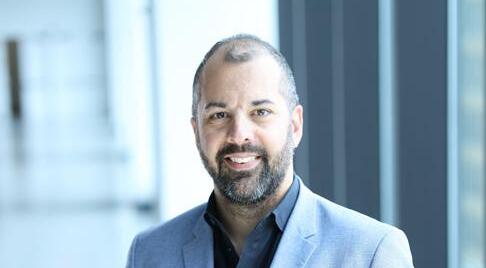
Gianluca Sardo
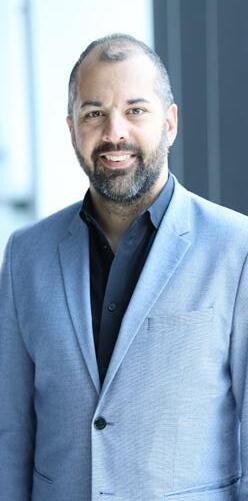
MOST INSPIRING BUSINESS WOMAN 2024

Victoria (Vix) Reitano
Innovative Marketer Dedicated to Driving Sustainable Growth Founder and CEO of Agency 6B


Helping Enterprise Organizations & Visionary Leaders Transform to Meet the Escalating Expectations of the Future
Nancy Giordano, Founder & Strategic Futurist, Play Big, Inc., Keynote Speaker & Author

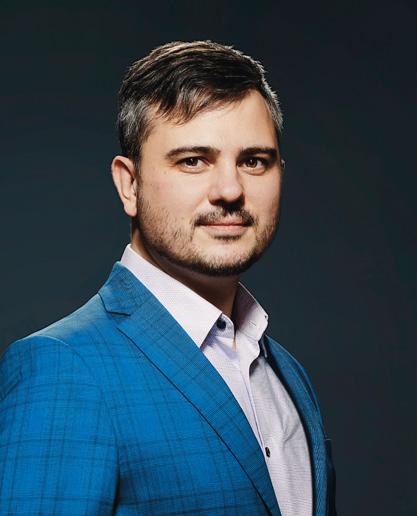
Revolutionizing Support: The Rise of Collaborative Contact Centres
Julien Rio, AVP International Marketing, RingCentral
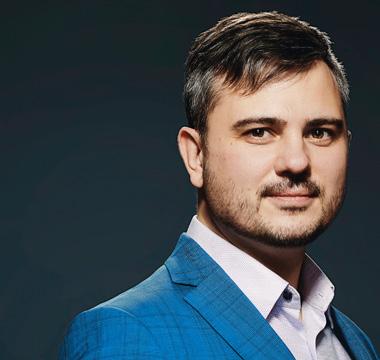
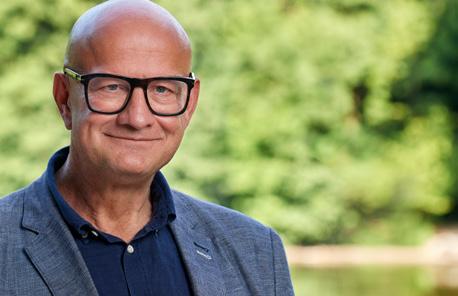
44
Mentoring and Coaching the Next Generation of Leaders
Jörg Peter Krebs, Director Central Europe & Middle East, Switzerland Tourism
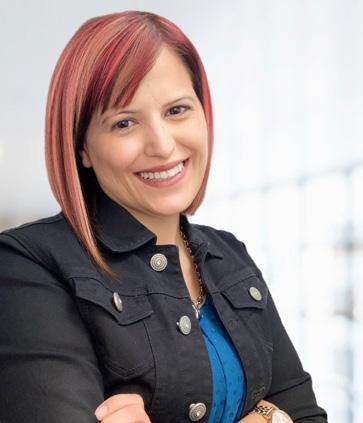
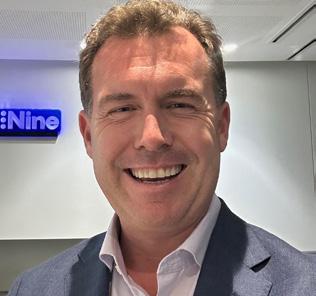
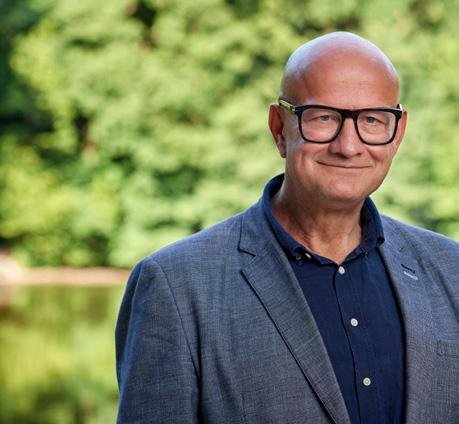
48
A Thought Leader, Helping Brands Become Purposeful
Maliha Aqeel, Founder & CEO, The Ideas Collective & Chair, International Executive Board, IABC
70
Empowering the Growth of Cultural and Creative Sectors
Michael Jacobsen, Founder, The Centre for Future Europe, International Business Leader & Advisor
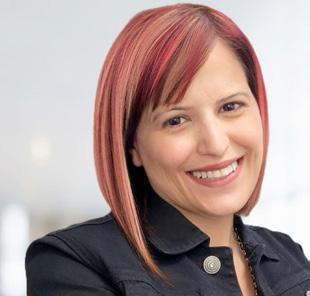
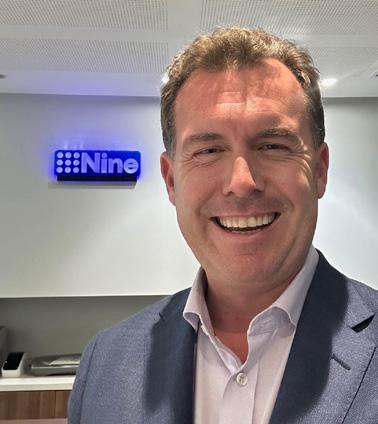

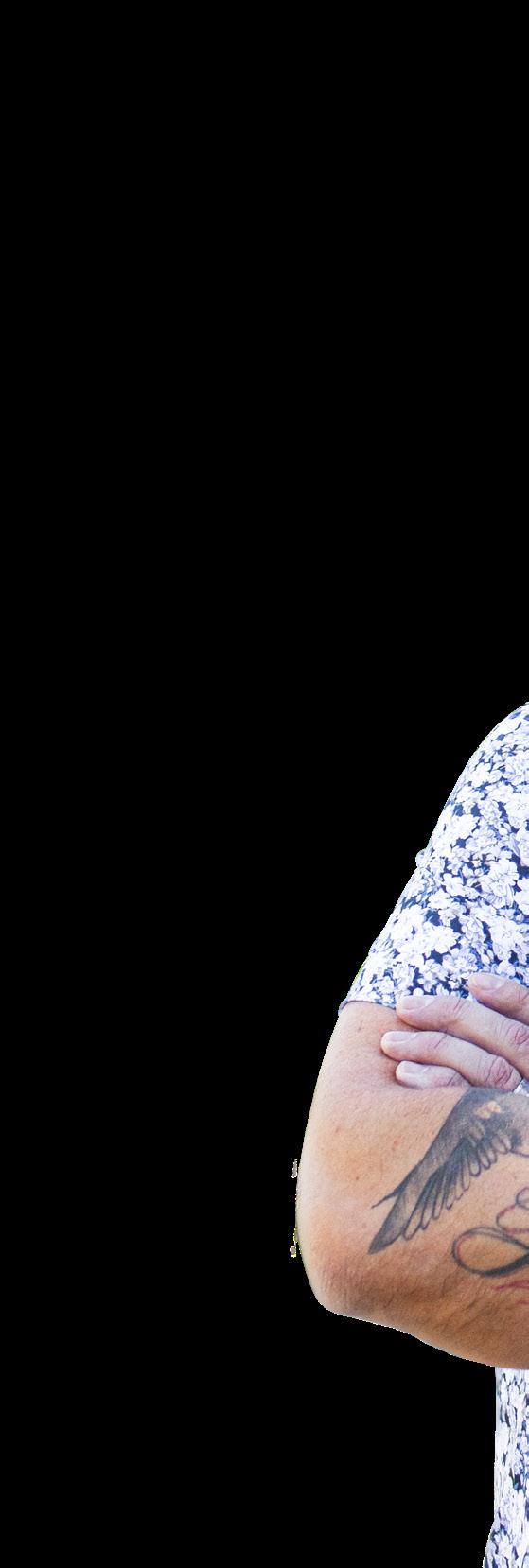
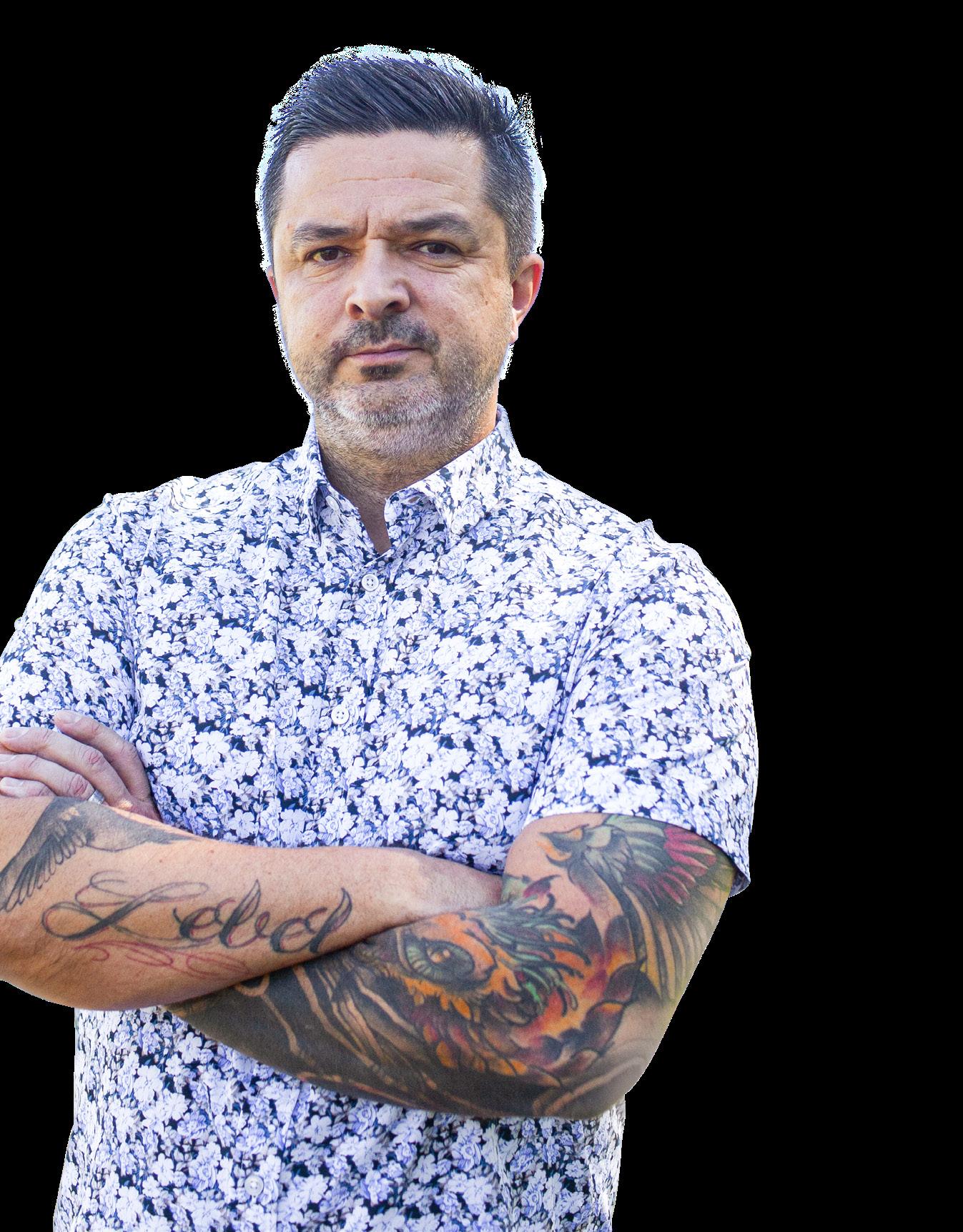
Charles Dumont, a seasoned marketing executive with over two decades of experience, has made significant contributions to the automotive sector. As the Chief Marketing Officer for GoNano in The Americas, he has proven himself to be an adept leader, driving successful sales, marketing, and media strategies. “Being part of GoNano has been an incredible journey,” says Dumont. “It’s about more than just marketing products; it’s about building relationships and creating value for our clients.”
Throughout his professional journey, Dumont has excelled in cultivating relationships with C-level executives, decision-makers, and clients across various industries. His fluency in both English and French has further extended his influence, enabling him to effectively manage a broad spectrum of market territories. “Being able to communicate fluently in multiple languages has been an asset,” Dumont remarks. “It’s helped me connect with clients on a deeper level and understand their unique needs.”
Dumont’s professional journey commenced 26 years ago with a career in marketing within the Federal Government. Early on, Dumont recognized the transformative potential of the burgeoning digital landscape in reshaping traditional marketing strategies. “The digital revolution sparked my interest,” Dumont recalls. “I saw an opportunity to leverage digital innovations to redefine marketing practices.”
Motivated by this realization, Dumont ventured into entrepreneurship, founding his own digital marketing agency. Over the course of four years, he gained invaluable insights into the digital realm, paving the way for his transition into the automotive sector. Joining General Motors of Canada marked a significant milestone in Dumont’s career. In his role as Director of Digital Marketing & Business Development, he navigated the challenges of traditional marketing mediums, such as newspapers, radio, and television, which often lacked actionable data and insights.
“At GM, we faced intense competition and the aftermath of the 2008 financial crisis,” Dumont
Inspired by GoNano’s vision and innovative products, Dumont was drawn to the company’s commitment to technological advancement and its position at the forefront of the nanotechnology industry
reflects. “It was a turning point where we had to innovate or risk falling behind.” Dumont spearheaded efforts to harness digital data, mapping the digital customer journey and leveraging data analytics to predict consumer behavior and timing for vehicle purchases. This strategic shift not only led to more effective marketing campaigns but also yielded significant cost savings and a notable 1.51% increase in market share.
“Integrating digital marketing was crucial for our business development goals,” Dumont emphasizes. “It allowed us to stay ahead in a rapidly evolving landscape.” Dumont’s journey from a federal government marketer to a key player in the automotive sector’s digital transformation underscores his unwavering commitment to innovation and his proactive approach to adapting to changing market dynamics.
Dumont’s transition into the field of nanotechnology and his subsequent role at GoNano were driven by a combination of professional restlessness and a serendipitous discovery. Despite achieving significant success in his previous endeavors, Dumont felt a desire to explore new avenues for growth and innovation. His tenure at a Fortune 100 company, while fulfilling, began to feel limiting, prompting him to seek out new opportunities. “The advertisement from GoNano was a revelation,” Dumont reflects. “It presented a unique opportunity to delve into the transformative potential of nanotechnology.”
Inspired by GoNano’s vision and innovative products, Dumont was drawn to the company’s commitment to technological advancement and its position at the forefront of the nanotechnology industry. “Joining
GoNano was a natural fit,” Dumont explains. “It allowed me to contribute to a field brimming with possibilities and be part of a company driving meaningful change.”
Dumont’s journey with GoNano epitomizes his belief in the power of embracing change and pursuing innovation. His leadership within the marketing department has been instrumental in launching innovative nanotechnology products and enhancing the company’s visibility in the competitive landscape. “At GoNano, we’re not just selling products; we’re shaping the future,” Dumont asserts. “It’s a journey marked by continuous innovation and a commitment to excellence.”
Dumont’s strategic planning and handson approach have been pivotal in driving team performance and establishing GoNano as a leader in the nanotechnology industry. Through initiatives such as tradeshows, high-profile interviews, and strategic media features, he has ensured the company remains at the forefront of industry advancements and innovation. “As a leader, my goal is to inspire and empower others to push the boundaries of what’s possible,” Dumont says. “Together, we’re shaping the future of nanotechnology.”
As the Chief Marketing Officer at GoNano, Dumont’s role is multifaceted and deeply intertwined with the company’s mission to lead the nanotechnology industry. His daily responsibilities extend beyond traditional marketing tasks; they encompass painting the big picture and connecting the dots to convey GoNano’s vision in ways that resonate deeply with its audiences. “My role is about storytelling,” Dumont explains. “But it’s also
As the Chief Marketing Officer at GoNano, Dumont’s role is multifaceted and deeply intertwined with the company’s mission to lead the nanotechnology industry
about understanding where we’re headed as a company and our role in the broader ecosystem of innovation.”
Central to Dumont’s responsibilities is shaping and communicating GoNano’s brand identity. This entails more than just logos and taglines; it’s about embodying the values, aspirations, and innovations that define GoNano’s essence. Dumont ensures that the company’s message is conveyed clearly, compellingly, and consistently across all channels, from digital marketing to face-to-face interactions at industry conferences. “My job is to ensure our brand engages with the world in a meaningful way,” Dumont states. “It’s about embodying our vision and values in everything we do.”
Beyond brand management, Dumont’s role requires a deep understanding of customers’ needs and behaviors. It’s about comprehending how they interact with technology, identifying their challenges, and showcasing how GoNano’s solutions can make a tangible difference in their lives or operations. This customer-centric approach guides GoNano’s marketing strategies, ensuring they are not only innovative but also relevant and impactful. “Innovation is at the heart of what we do,” Dumont asserts. “We must stay ahead of the curve in a rapidly evolving tech landscape.”
Keeping pace with technological advancements is paramount for Dumont. He explores new marketing technologies, platforms, and methodologies to amplify GoNano’s reach and effectiveness. Embracing bold ideas and learning from both successes and failures are fundamental to Dumont’s approach to innovation. “As CMO, I serve as a bridge between our innovations and the market,” Dumont explains. “It’s about driving growth and advancing technology for a better world.”
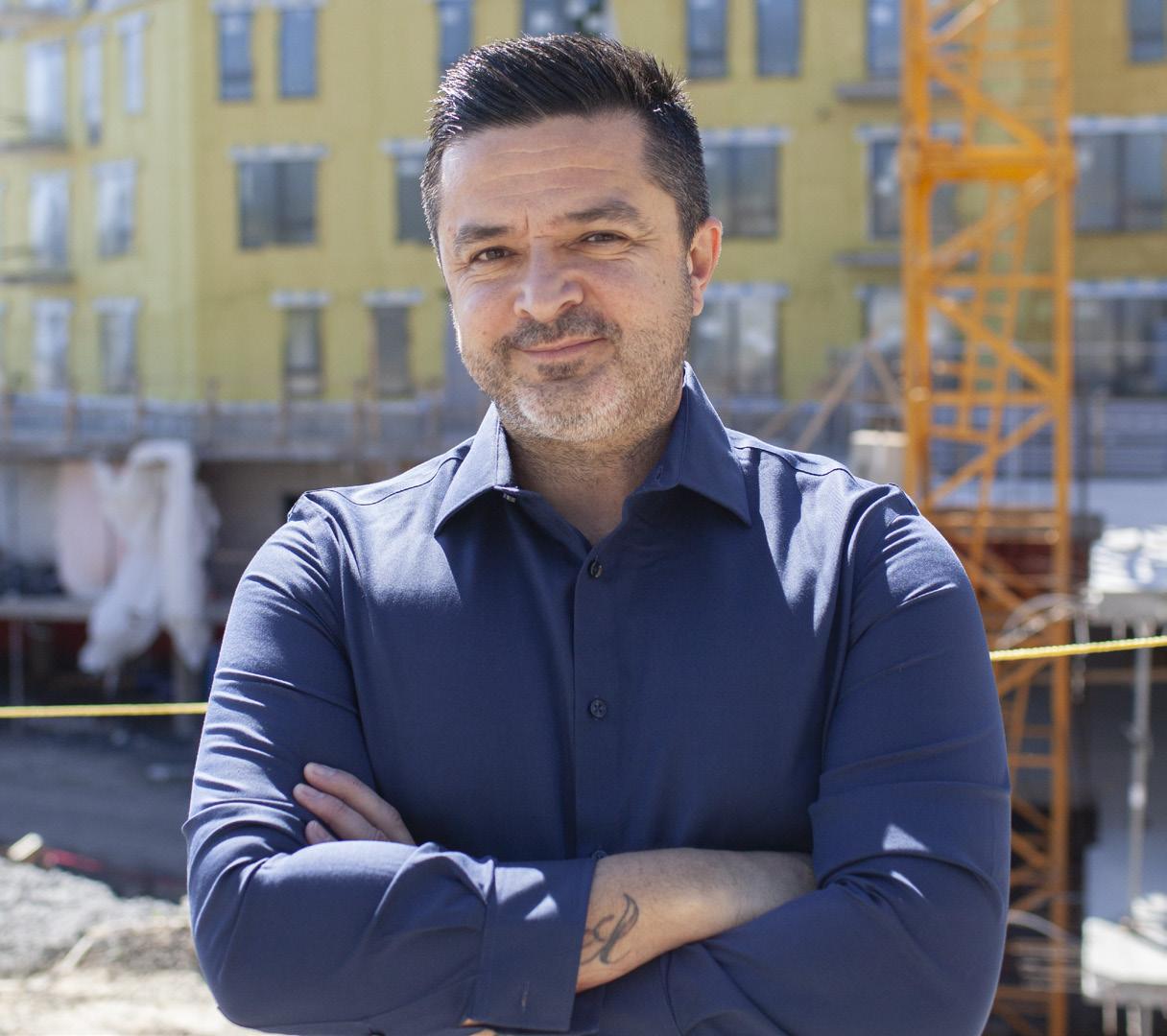
At GoNano, the marketing strategy under Dumont’s leadership has been multi-faceted, emphasizing the significance of visibility and engagement within the nanotechnology sector. A key aspect of this strategy has been positioning GoNano prominently in the minds of industry leaders, influencers, and the broader audience through targeted outreach
initiatives. “Our goal is to connect with our audience on a personal level,” Dumont explains. “We achieve this by humanizing our brand and showcasing our expertise through various channels.”
One successful tactic has been securing guest spots on popular YouTube channels and podcasts within the tech and nanotechnology communities. These appearances not only highlight GoNano’s capabilities but also foster
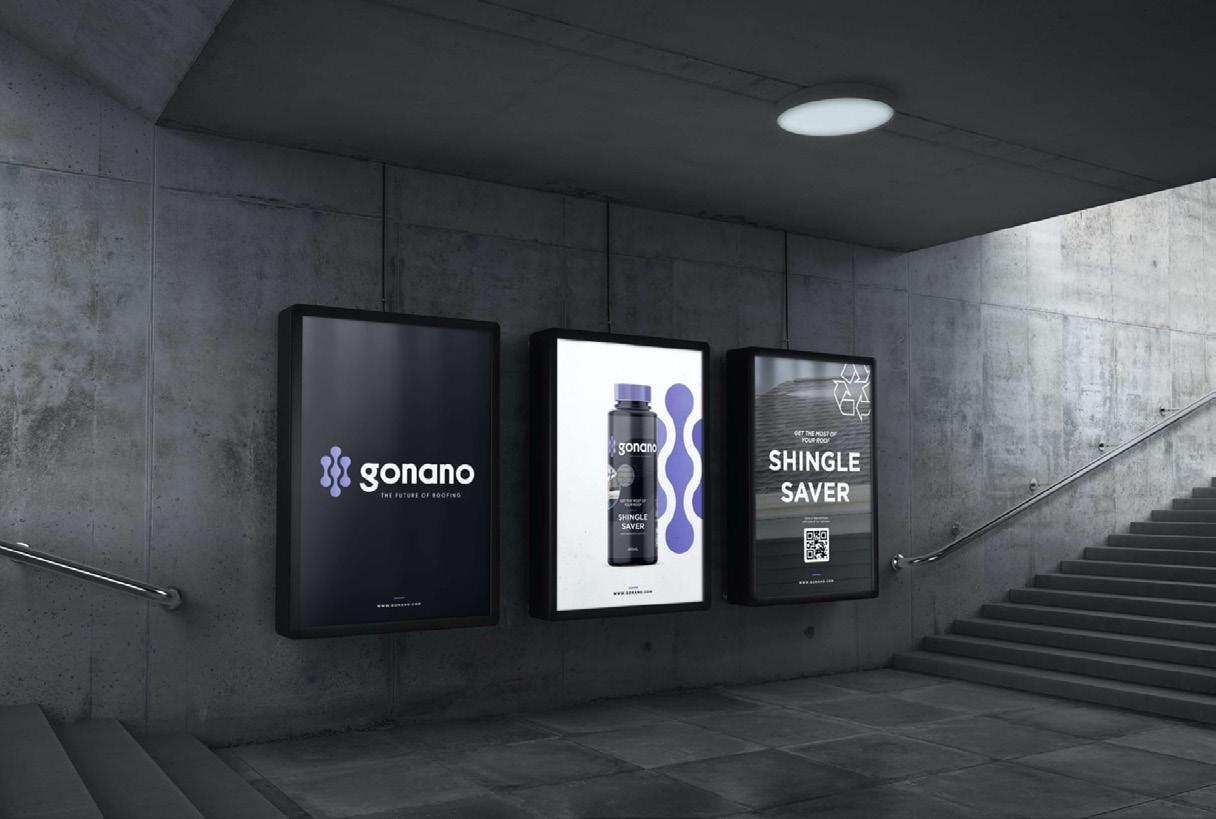
a deeper connection with the audience. “Being recommended by key influencers has amplified our reach and credibility,” Dumont states. “It’s about leveraging trust to introduce GoNano to a wider audience authentically.”
Tradeshows have also played a vital role in GoNano’s marketing strategy, with participation in over 20 events. These platforms provide opportunities for live demonstrations of GoNano’s products, allowing direct engagement with potential customers and immediate feedback.
“Our presence at tradeshows strengthens relationships and increases visibility,” Dumont emphasizes. “It’s a chance to showcase the tangible benefits of our nanotechnology solutions.”
On the digital front, GoNano’s social media strategy has been instrumental in maintaining brand presence and sparking industry conversations. Creative and engaging posts and videos highlight not only GoNano’s products but also broader themes of innovation and technology, resonating with the audience. “Our social
At GoNano, the marketing strategy under Dumont’s leadership has been multi-faceted, emphasizing the significance of visibility and engagement within the nanotechnology sector
media campaigns create a dynamic and interactive community around our brand,” Dumont explains. “It’s about fostering engagement and establishing GoNano as a leader in the nanotech space.”
By leveraging the influence of industry leaders, engaging directly with the community at tradeshows, and maintaining an active presence on social media, GoNano ensures its visibility and leadership in the nanotechnology industry. This innovative approach not only cultivates a culture of creativity within the marketing team but also solidifies GoNano’s position as a trailblazer in the field.
GoNano distinguishes itself in the rejuvenation space by harnessing unique nanotechnology applications, setting it apart from competitors relying on more conventional methods. While competitors often utilize bio oils and surface sealants for temporary protection, GoNano’s nanotechnology-based solutions offer long-lasting benefits that significantly extend the lifespan of materials without frequent maintenance. “Our nanotechnology solutions redefine durability,” explains Dumont, emphasizing the company’s commitment to innovation and sustainability.
Unlike traditional methods, GoNano’s products protect materials like concrete, wood, and asphalt from environmental stressors while enhancing their longevity. This key differentiator enhances material durability, ensuring environmental safety and sustainability.
To maintain its competitive edge, GoNano invests heavily in research and development, continuously advancing its technology to exceed customer expectations. Strong customer relationships and strategic marketing efforts effectively communicate
By leveraging the influence of industry leaders, engaging directly with the community at tradeshows, and maintaining an active presence on social media, GoNano ensures its visibility and leadership in the nanotechnology industry

the unique benefits of GoNano’s products, emphasizing superior performance and longlasting protection. “Our focus on innovation and customer satisfaction drives our success,” Dumont asserts. “We’re committed to leading in the rejuvenation space.”
GoNano’s nanotechnology-based products contribute significantly to sustainability within the construction industry. Rigorously tested and rated safe for the environment, these products extend material lifespans without posing ecological risks. “Our products offer a financially and environmentally sustainable solution,” Dumont states. “By reducing the frequency of replacements and repairs, we promote greener building practices and conserve resources.”

Through its nanotechnology solutions, GoNano not only prolongs material life but also leads the way in advancing sustainability within the construction industry, embodying its commitment to environmental stewardship and innovation.
At GoNano, Dumont’s entrepreneurial spirit and adeptness in engaging with clients and industry influencers have played a pivotal role in elevating the brand’s national presence. One of the key strategies employed is the strategic utilization of media opportunities to maximize visibility. “Our focus on media engagement has been instrumental in propelling our brand into the spotlight,” Dumont explains, highlighting the company’s commitment to strategic partnerships and collaborations. Under Dumont’s leadership, GoNano
has forged partnerships with key influencers in the nanotechnology and broader tech industry. These collaborations involve coordinated campaigns where influencers showcase GoNano’s products and discuss the cutting-edge technology behind them on their platforms. “Our partnerships with influencers have significantly expanded our reach and credibility,” Dumont states. “It’s about showcasing our innovations to engaged and relevant audiences.”
Additionally, GoNano has secured guest spots on prominent podcasts and YouTube channels frequented by the target audience. These appearances provide a platform to articulate GoNano’s vision and showcase its innovations directly to interested audiences. “Our media appearances have not only amplified our reach but also enhanced our brand’s credibility and appeal,” Dumont remarks. “They’ve been crucial in maintaining our competitive edge in the market.”
Through strategic media engagement initiatives led by Dumont, GoNano continues to solidify its position as a leader in the nanotechnology industry, demonstrating its commitment to innovation and excellence.
At GoNano, the strategy for gaining client buy-in and promoting consensus around its nanotechnology solutions revolves around education, transparency, and proven results. This approach, spearheaded by Dumont, is designed to demystify complex technology, showcase practical benefits, and build trust with clients. “Our goal is to empower clients with knowledge and evidence,”
Dumont explains, emphasizing the company’s commitment to transparency and education.
To achieve this, GoNano conducts detailed presentations and interactive workshops, providing insights into the real-world applications of its products. Additionally, the company highlights its substantial investment in rigorous testing, totaling over half a million dollars. This investment not only underscores GoNano’s commitment to quality but also provides concrete data and case studies demonstrating the effectiveness and efficiency of its technology. “We want clients to see the tangible impact of our solutions,” Dumont states. “By showcasing proven results, we build credibility and trust.”
By presenting evidence of performance improvements and return on investment achieved by existing customers, GoNano enables potential clients to visualize the benefits of adopting its technology. Moreover, the company prioritizes building transparent relationships with clients, maintaining open lines of communication and consistent feedback loops throughout the engagement process. “Our approach is comprehensive,” Dumont explains. “It’s about fostering trust and confidence in GoNano every step of the way.”
Through its commitment to education, transparency, and proven results, GoNano continues to build strong relationships with clients, making it easier to achieve consensus and secure buy-in for its nanotechnology solutions. This client-centric approach underscores GoNano’s dedication to excellence and innovation in the industry.
During Dumont’s tenure as Chief Marketing Officer at GoNano, the company has achieved
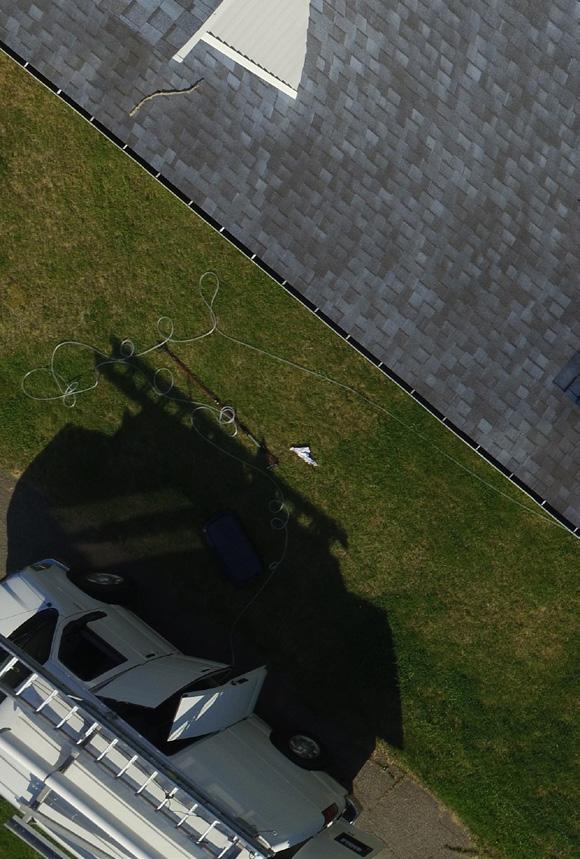
notable milestones reflecting the success of its strategic marketing initiatives. One key accomplishment has been a significant increase in market share within the nanotechnology sector, achieved through targeted campaigns and influential partnerships that enhanced visibility and credibility. “Our focus on strategic partnerships and targeted campaigns has been instrumental in our growth,” Dumont explains, highlighting the company’s commitment to innovation and effective marketing.
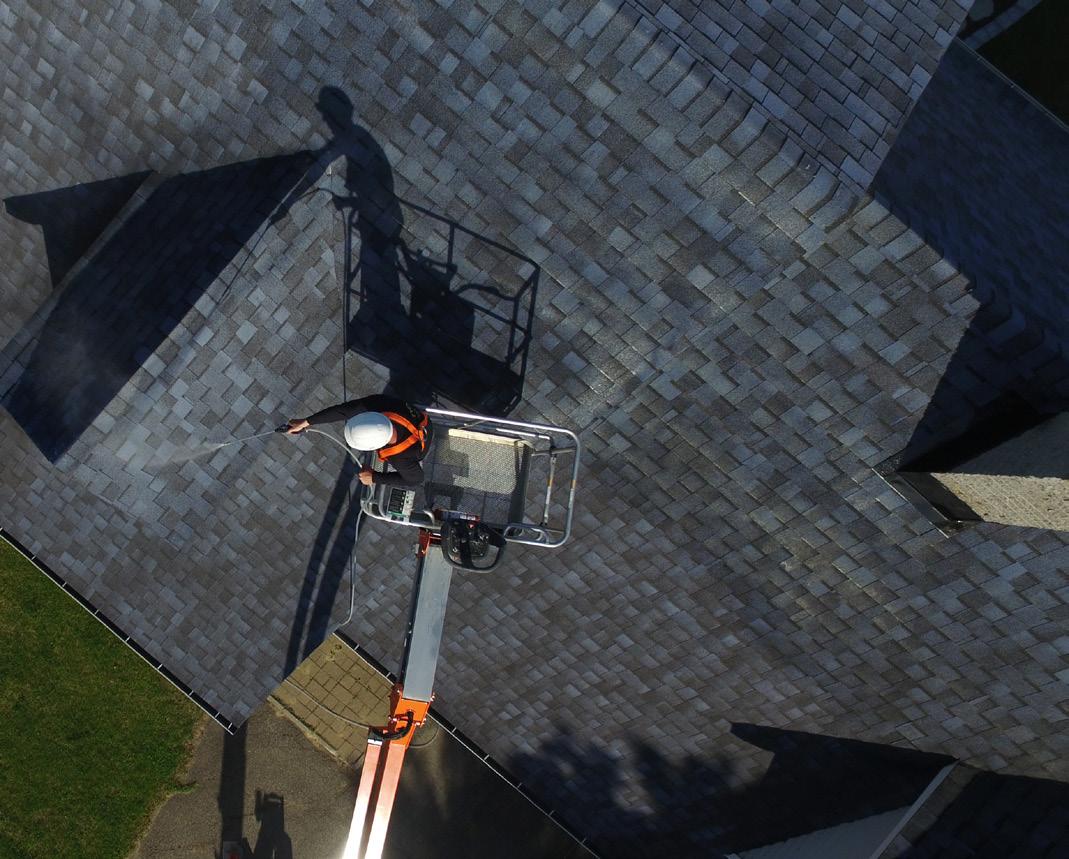
Additionally, GoNano’s efforts have led to recognition as a leader in innovation by several industry awards, affirming its dedication to cuttingedge technology and marketing excellence.
“Innovation is at the core of everything we do,” Dumont asserts. “It’s rewarding to see our efforts recognized by industry leaders.”
In evaluating the success of its marketing initiatives, GoNano prioritizes a range of metrics tailored to strategic goals. Key metrics include conversion rates, customer
acquisition costs, and return on investment (ROI), providing insights into the direct financial impact of marketing activities. “We closely monitor financial metrics to ensure our marketing efforts are driving tangible results,” Dumont states. “It’s crucial for measuring our effectiveness and guiding future strategies.”
Additionally, GoNano tracks engagement metrics such as social media interactions and website traffic to gauge brand awareness and customer interest. Customer satisfaction and

One standout advancement GoNano is anticipating is a nanotech product designed to protect against graffiti— a solution poised to revolutionize urban construction by offering buildings resilience while maintaining aesthetic integrity in areas prone to vandalism
retention rates are also monitored to understand the long-term effectiveness of marketing strategies in maintaining and expanding the customer base. “Our comprehensive approach to metrics ensures we have a clear understanding of our marketing performance,” Dumont remarks. “It’s essential for driving continued growth and innovation at GoNano.” Through its commitment to strategic initiatives and data-driven decision-making, GoNano continues to achieve milestones and drive growth in the nanotechnology sector, solidifying its position as a leader in innovation and marketing excellence.
Looking ahead, Dumont is excited about the groundbreaking potential of GoNano’s upcoming product releases and the broader impact of nanotechnology in construction. The company’s continued investment in research
and development is poised to transform the industry. “Our innovations are set to redefine urban construction and maintenance,” Dumont explains, highlighting GoNano’s commitment to pushing the boundaries of nanotechnology.
One standout advancement GoNano is anticipating is a nanotech product designed to protect against graffiti—a solution poised to revolutionize urban construction by offering buildings resilience while maintaining aesthetic integrity in areas prone to vandalism. “Our graffiti protection product represents a significant leap forward in urban maintenance,” Dumont states. “It’s about preserving the beauty of our cities while ensuring their durability.”
Furthermore, GoNano is on the cusp of disrupting the commercial roofing industry with a new nanotechnology-based solution. This product promises to dramatically extend the lifespan of roofing materials while enhancing durability against environmental factors, leading to significant cost savings and sustainability benefits in commercial construction. “Our roofing solution will set a new standard in durability and sustainability,” Dumont asserts. “It’s an exciting prospect for the industry.”
These developments underscore GoNano’s commitment to advancing nanotechnology in construction and its dedication to environmental sustainability and urban planning. “The future looks incredibly bright,” Dumont remarks. “We’re thrilled to be at the forefront of these transformative changes, contributing to a more sustainable and resilient built environment.”
These engagements not only provide platforms to demonstrate GoNano’s cuttingedge solutions but also offer valuable opportunities for networking and relationshipbuilding. “We’re excited to share our advancements with the wider community,” Dumont states. “It’s about fostering connections and driving innovation.”
Of particular interest are GoNano’s advancements in anti-graffiti products and commercial roofing materials, set to transform their respective sectors. These innovations will be highlighted at upcoming events, serving as a springboard for product launches and facilitating immediate feedback from industry experts and potential clients. “Our proactive approach positions us for continued growth and industry leadership,” Dumont remarks. “It’s about pushing the boundaries of what’s possible in nanotechnology.”
By blending rigorous research and development with robust marketing and community engagement, GoNano is poised to lead and expand in the nanotechnology sector. The synergy created by these activities drives both growth and industry leadership, positioning GoNano at the forefront of innovation and advancement.
Excitement fills the air at GoNano as the company looks ahead to upcoming projects and initiatives. Dumont is particularly enthusiastic about the dynamic schedule ahead, which includes tradeshows, interviews, and features strategically designed to maintain promotional momentum and showcase the latest nanotechnology innovations. “Our calendar is packed with opportunities to engage with industry leaders and showcase our advancements,” Dumont explains, emphasizing the importance of direct interaction with key stakeholders.
Nancy Giordano, Founder & Strategic Futurist, Play Big, Inc., Keynote Speaker & Author
Hi Nancy. Please tell us about your career path and areas of interest. How did you get to becoming a strategic futurist?
How people behave and how systems work have always fascinated me, so I studied both Economics + Psychology and was excited to discover the field of advertising. I began my career in several of the top agencies in NYC, Chicago and Los Angeles, and my strategic work expanded as new
technologies and cultural priorities advanced, from the emergence of the internet and the mobile/ social revolution to a desire for more sustainable and healthy lifestyle options.
I loved helping global companies build more meaningful relationships with their stakeholders, but soon found it surprising (and frustrating) to see how often these large organizations struggled to absorb and respond to quickly changing
Nancy Giordano is an exponential strategist, business futurist, and bestselling author who has consulted on a portfolio of $60+ billion well-known brands and given more than 100+ global keynotes. With a drive to help enterprise organizations and visionary leaders transform to meet the escalating expectations ahead, she advises leaders on the organizational structures and new mindsets necessary to effectively harness the significant technology innovations heading our way.
Recently, in an exclusive interview with CXO Outlook Magazine, Nancy shared her professional trajectory, the inspiration behind establishing Play Big, Inc, the major takeaways from her best-selling book on Amazon, significant career milestones, future plans, pearls of wisdom, and much more. The following excerpts are taken from the interview.

This is a powerful moment in which our choices – individually and collectively – are shaping the future for generations to come
conditions, even as they were under tangible threat. This made me really curious to see how dynamic tech start-ups did it differently, and more than 8 years ago I became part of an early AI startup. Around the same time, I became the world’s first official TEDx licensee and began designing experiences that helped others meet the ideas and people leading the change.
A friend also asked me to produce an executive conference on the most significant tech advances – including AI, robotics, additive manufacturing, spatial computing and more – and as I did, it became even more clear how unprepared most of us are for the big changes coming to every single industry. I became a Strategic Futurist to help bridge that gap, and recently I “promoted myself” to Exponential Strategist in order to better highlight the extraordinary impact and responsibility our decisions carry at this unique moment in time.
A close friend and colleague once introduced me as “endlessly optimistic and one who sees the potential in everything”. Interestingly, this comes with both pros + cons, as I learned early on that I have a unique ability to connect a lot of disparate dots (often described as “sensemaking”) but not always the patience to wait for others to see them, too. As such, I’ve been eager to help leaders accelerate their understanding of changing conditions as well as more deeply appreciate the systemic impact of their decisions. I’m passionate about helping leaders with tremendous resources direct and invest these in more intentional, consciously aligned ways that don’t simply extract but actively create value across the board, now and into the future.

Those still operating with an outdated playbook are struggling to apply old approaches and regulations to a new world, which frankly, is frightening

As I built my own strategic inspiration consultancy, I resonated with author Marianne Williamson’s invitation that: “Your playing small does not serve the world”, and believe we play big when we align our work, our personal values and our responsibilities to society to ensure a safe and thriving life for everyone by, for example, rebuilding a more human internet, designing sustainably and recognizing the value of unpaid care work in our economic modeling.
This is a powerful moment in which our choices – individually and collectively – are shaping the future for generations to come. Which means that the bigger we play, the better the outcome.
You help enterprise organizations and visionary leaders transform to meet the escalating expectations ahead. Are organizations more excited or apprehensive about the future?
I spend a lot of time with the people who are literally building the future – the technologists, scientists, designers, entrepreneurs, investors, etc –who believe we have barely scratched the surface of what is possible; some even believe we could be on the verge of as many as fourteen internet-sized transformations! Can you imagine? While that is really hard to wrap our minds around, we are beginning to see/feel that old systems are breaking down while the shape of the new is not fully visible yet. As we try to make sense of quickly advancing concepts like generative AI, cryptocurrency, distributed energy grids, personalized education and circular economic systems, we are standing in what I describe as “the Liminal Gap” – this space between what is familiar and what is not.
Those still operating with an outdated playbook are struggling to apply old approaches and regulations to a new world, which frankly,
is frightening. Others find this is a very exciting time as they are eager to transform everything from education to finance to food systems to economic metrics in ways that balance economic vitality and ecological stability and that offer access to more people (eg. regenerative agriculture). They see this as a moment we can transition from a highly extractive, exhausting and exclusionary past to a thriving, equitable and harmonious future. To make this shift, however, requires a different way of thinking, operating and measuring our investments and progress.
Can you please share the major takeaways from your book, “Leadering: The Ways Visionary Leaders Play Bigger”?
As I tried to unravel why so many accomplished leaders struggled to adapt to changing conditions and prepare for the impact of advancing technologies, it became really clear that what lead to success in the 20th Century industrial era was actually not at all what was required now in the exponential productivity transformation of the 21st Century – and that relying on this outdated way of thinking is actually quite dangerous, both for the organization and for society.
LeaderSHIP (the noun) was an approach we were all taught these past several decades that was intentionally designed to be static, closed, hierarchical and push away variance and rapid experimentation in order to scale efficiently and deliver consistent short-term profitability. However, as the environmental and societal externalities mount – and as the technologies advance ever faster – this slow, narrow-minded approach no longer holds up. What you see instead when you look at those navigating through the liminal gap more successfully and confidently is that they are
As I became invited to share my insights and energetic POVs via keynotes around the world, I was often the first and/ or the only woman on the stage in this capacity

adopting a more adaptive mindset I describe as LeaderING (a verb); one that embraces practices that are dynamic, inclusive, and systemic to support continuous innovation/experimentation for long-term, stakeholder value creation. These incentivize – versus discourage – organizational curiosity and learning; they actively build ecosystems of collaboration inside and outside the organization; they rethink “risk” and embrace those at the edge closest to the customer/market vs those with the most tenure closest to the top.
The most successful leaders today are guided by a sincere “why” that transcends a tactical “how”, and which opens audacious opportunities.
My book gives loads of examples – from Microsoft to Martha Stewart – of leaders and organizations that continuously and successfully lean into change and have shifted away from short-term extraction to longer-term value creation in ways that acknowledge and embrace their social license to operate. Excitedly, these exist in every industry.
Please brief us about the mission and vision of Femme Futurists Society.
As I became invited to share my insights and energetic POVs via keynotes around the world, I was often the first and/or the only woman on the stage in this capacity. I also noticed that my well-meaning but unaware male colleagues only referenced men as innovators or visionaries in their talks, unintentionally further pushing women’s contributions into the dark. And I have become really concerned by the statistics that show women are becoming less engaged (and almost never funded) in the fastest growing industries – from AI and cybersecurity to robotics, fintech and healthcare and more – even though all the research shows that organizations with diverse teams are more profitable, more innovative and less biased (and thus safer) in their decision-making.
I was especially excited then to see lists of other women making substantial inroads as futurists, technologists and entrepreneurs and wanted to both meet and spotlight them. My colleague Emma Pezzack and I co-founded The Femme Futurists Society as way to do this, and she and I have spent the last several years taking turns inviting these engaging, brilliant, self-assured and uniquely self-directed women to have conversational interviews with us in order to learn more about their work, their paths and their passions.
How do you think we can encourage more females to fulfill their goals of entering this industry and why do you think this is important?
To become a trusted voice at a time of so much uncertainty, women need to see more of each other’s perspectives and appreciate that our way of

thinking/approaching things is both necessary and welcome. Overall, we believe in the need to balance the dominant masculine worldview with the currently massively underrepresented feminine and are creating this space to amplify the women around the world and across domains who are framing and championing big transformations in how we work, play, govern, discover, collaborate, learn, and ultimately connect, coordinate and create.
By sharing their insights on emerging technologies, shifting cultural expectations, scientific breakthroughs and vision for a thriving future that works for all, our hope is that we can get everyone deeply motivated by the possibilities...and confident in building them too.
It is also critical, by the way, that women reap the financial rewards of all this innovation so that we can also invest in the future we wish to see.
According to you, what will successful leadership of the future look like?
I firmly believe that we need to put humanity at the center of all our decision-making (rather than focusing on relentless growth). We need to think long-term (vs short-term) and consider all stakeholders (not only investors). We need much more diverse teams, we need to look more deeply at our own patterns, triggers and biases in order to be more open to new ideas, new approaches and harmful blindspots. We need to take much better care of youth around the world and give their needs and ideas much more attention. And we need to lead in more dynamic, fluid and caring ways.
We will be confronted with so many provocative new ideas and concepts – from 4 day work weeks and psychedelic healthcare to fair climate transition investments and space
To become a trusted voice at a time of so much uncertainty, women need to see more of each other’s perspectives and appreciate that our way of thinking/ approaching things is both necessary and welcome
collaboration (vs colonizing) – that require we work with others around the world in truly wholehearted and open-minded ways. I see the work of the future this way:
We all deserve to be well held….
… By each other, in respectful, caring communities.
… By the systems we design, to ensure they are inclusive, sustainable and future-focused.
… By the technologies we advance, so they first and foremost are fair, ethical, accessible and safe.
… And by the stories we tell about what is possible, that excite and encourage us to build an even better next.
Fifty percent of the world is under age 30; 42% is under age 25. They so deserve to have the kind of peace of mind we did growing up. As the folks in charge now, we owe them a safe world and a caring, optimistic transition from the industrial economy to this next regenerative and digital one.
As a “futurist mom”, the world’s children are my primary motivation.
I also believe we are at the most exciting time in history in which every single industry and societal construct is up for rethinking and can now be more consciously and thoughtfully designed to support the needs of
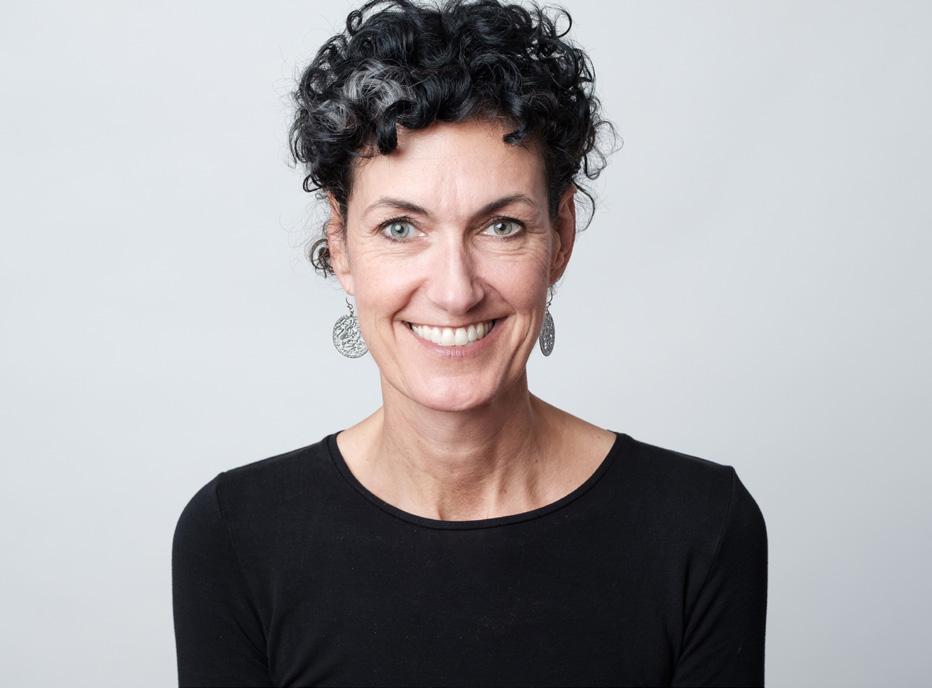
It is also critical, by the way, that women reap the financial rewards of all this innovation so that we can also invest in the future we wish to see
the planet and each other with the wisdoms of indigenous leaders, youth, women and nature itself showing us the way. I can’t think of a better time to be alive because the future is not happening to us, it is us!
What are you particularly proud of in your career?
I’m proud I’ve been able to build a thriving career with people I really love while also being the kind of mother I very intentionally sought to be. I have three happy, curious, thriving young adult children all poised to make their own contributions and creations, and who take it for granted that we create work (both paid and unpaid) that inspires, takes good care of people and adds (vs extracts) value.
I’m proud I wrote a book – and named a concept – that better prepares visionary leaders for the changes to come and gives all the courage and inspiration to play bigger to ensure we all
have the future we want. And am very grateful for the support, input and encouragement this idea continues to attract.
And I’m proud I’ve of the communities I’ve both created and been invited to be a part of, because as my friend Douglas Rushkoff puts it: “Being human is not about individual survival or escape. It’s a team sport. Whatever future humans have, it will be together.”
Where do you see yourself in the next 5 years?
I’m very interested in how we can more effectively, sustainability and equitably distribute the radical increases in productivity possible ahead; What does it mean to rethink the concept of “work” as technologies both augment and replace what we do now? How can we ensure all have safe and dignified housing, healthy food and quality healthcare as these are each delivered in very different ways
I can’t think of a better time to be alive because the future is not happening to us, it is us!
ahead? How will the world change when all are connected via a distributed internet and have access to free education? What does it mean to build regenerative systems and how will this impact our motivation to work together to take better care of our planet and her finite resources? In what ways will our consciousness continue to expand, offering us a better view of what connects us to each other so we can appreciate the superorganism we likely are? And how will all this shape the socio-economic models of this future?
These are the questions I’m extremely interested in exploring and hopefully will be able to share in a new book and my first documentary film.
What would you recommend corporate leaders start taking action towards to prepare for the future?
We have to let go of the outdated map and accept that yesterday’s playbook is dead; clinging to these actually creates more risk and danger (not less). Instead, we must embrace and calibrate a dynamic
compass that is able to continuously sense and respond to new information. These two questions guide mine:
1) Do I see/understand what the future needs and expects?
2) Can I see/appreciate what I am in an unique position to create and contribute to this future? (as an individual, a team, an organization, an industry, a community, a nation…)
I can’t underscore enough just how pivotal and fast moving things are right now. We will be faced with many more complex societal and ethical questions even as new extraordinary solutions are made visible. As such, how we think is so much more important now that what we know.
So take a deep breath and accept it is time for us all to play much bigger, together. The decisions we make now will have exponential impact for generations to come, so deepen your leadering practices and embrace that caring is at the heart of 21st Century success. With this approach it is possible (and very exciting) to step into the unknown with the awesome combination of humility and confidence. Thank you!

ianluca Sardo joined The Glasshouse in New York City just before its grand opening in 2021. Currently serving as its Chief Operating Officer, Gianluca has over two decades of experience in the hospitality and event management industry. He brings a wealth of knowledge and a unique international perspective to the table, having held various positions in both Italy and the United States. "I grew up in Italy, where family gatherings and community events were a significant part of life. These experiences sparked my interest in hospitality and event management. I was fascinated by how events could bring people together and create lasting memories,"
Gianluca recalls. This passion steered him towards a career in the hospitality industry, where he could blend his love for organizing events with his desire to create exceptional experiences for others.
Gianluca began his career in Italy, honing his skills in customer service and operations. His journey then took him to the United States, where he expanded his expertise further. This diverse background equipped him with a profound understanding of cultural sensitivities and the ability to tailor services to meet diverse client needs. "One of the early challenges I faced was adapting to different cultural expectations and standards in the hospitality industry. Starting my career in Italy and then moving to
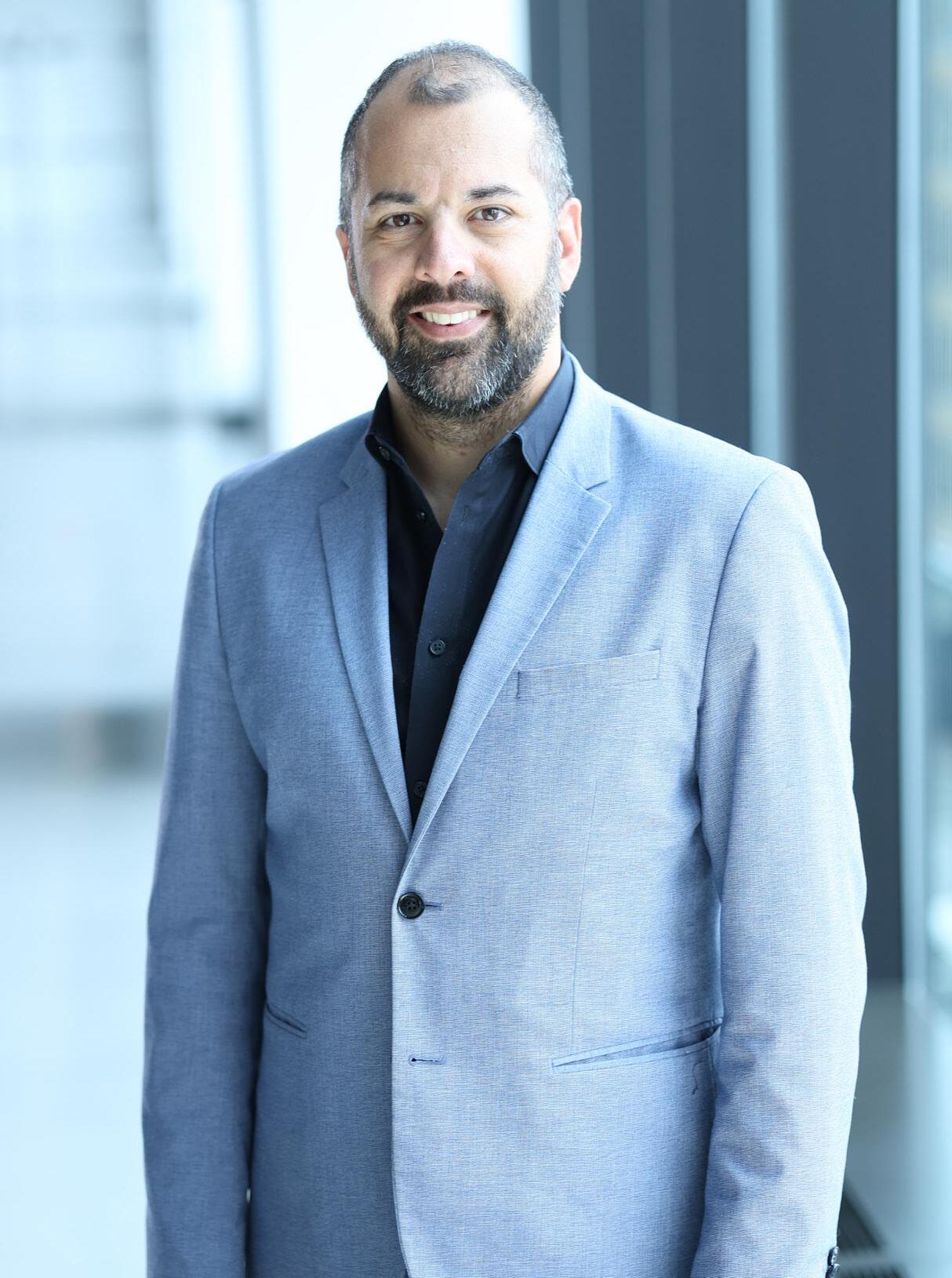
Gianluca Sardo CHIEF OPERATING OFFICER OF THE GLASSHOUSE
the US required a keen understanding of diverse customer preferences and service styles," he explains. He overcame these challenges by staying adaptable, continuously learning, and building strong relationships with mentors who guided him through these transitions.
Throughout his career, Gianluca has worked in various roles across Italy and the US, gaining unique insights and skills from each position. From front-line customer service to


Today, as the COO of The Glasshouse, Gianluca's primary responsibilities include overseeing daily operations, ensuring seamless event execution, and driving strategic initiatives to enhance the venue's offerings

executive management, these experiences taught him the importance of adaptability, effective communication, and the ability to see the big picture while managing intricate details.
Gianluca's career, marked by roles in different countries and positions, has provided him with a broad perspective on the hospitality industry. These experiences have emphasized the importance of cultural sensitivity and tailoring services to meet diverse client expectations. "Working in different countries and positions has highlighted the value of innovation and continuous improvement in maintaining a competitive edge," Gianluca notes.
At The Glasshouse, Gianluca’s initial challenge was ensuring everything was ready for a seamless launch. This involved coordinating with various teams to finalize construction, setting up operational protocols, and building a cohesive team. "We addressed these challenges through meticulous planning, clear communication, and fostering a collaborative environment where everyone was aligned with our goals," he explains.
Today, as the COO of The Glasshouse, Gianluca's primary responsibilities include
The Glasshouse in New York City offers stunning views, state-ofthe-art facilities, and versatile spaces that can be customized for any event
overseeing daily operations, ensuring seamless event execution, and driving strategic initiatives to enhance the venue's offerings. He focuses on continuous improvement, regular staff training, and maintaining high standards of service and safety. Additionally, he actively engages with investors to improve financial results.
Gianluca oversees the execution of over 200 events annually at The Glasshouse. His collaborative and empowering leadership style has been instrumental in building a dedicated team committed to excellence and innovation. His strategic vision includes expanding The Glasshouse brand to major cities like Miami and Los Angeles, as well as additional locations in New York City, solidifying its reputation as a premier event venue.
The Glasshouse in New York City offers stunning views, state-of-the-art facilities, and versatile spaces that can be customized for any event. Gianluca and his team leverage these unique aspects by working closely with clients to understand their vision, bringing it to life with meticulous attention to detail and creative solutions. "We focus on understanding our clients' vision and bringing it to life with meticulous attention to detail and creative solutions," Gianluca shares.
Successfully managing over 200 events annually is a significant achievement. Key strategies for this success include meticulous planning, attention to detail, and effective communication with clients and vendors. Gianluca also implemented a
robust feedback system to continuously improve services. "Building a strong, dedicated team and empowering them to take ownership of their roles was crucial to our success," he explains.
Balancing creativity and logistics requires a structured approach and a keen eye for detail. Gianluca's process starts by understanding the client's vision, then creating a detailed plan that outlines every aspect of the event.
Regular check-ins and adaptability ensure the team stays on track while allowing room for creative enhancements.
Gianluca's vision for The Glasshouse is to be the premier event venue in NYC, known for exceptional service and unforgettable experiences. "We plan to achieve this by continuously innovating, expanding our offerings, and building strong relationships with our clients and partners," he states.
Gianluca describes his leadership style as collaborative and empowering. He believes in leading by example, providing clear direction, and fostering a supportive environment where team members feel valued and motivated. "Over the years, my leadership style has evolved to be more adaptive, recognizing the importance of flexibility and innovation in a rapidly changing industry," he notes.
At The Glasshouse, Gianluca’s priority is to hire individuals who are not only skilled but also share a commitment to excellence and teamwork. Continuous training, open communication, and recognition of hard work and achievements help build a positive and respectful work environment. Gianluca emphasizes the importance of these practices, stating, "We prioritize hiring individuals who are



not only skilled but also share our commitment to excellence and teamwork."
The team at The Glasshouse is encouraged to share their ideas and provided with regular opportunities for professional development. By fostering an environment where innovation is valued and supported, Gianluca empowers his team to strive for excellence in all aspects of their work. "We encourage our staff to share their ideas and provide regular opportunities for professional development," he says.
Gianluca's advice to those aspiring to build a successful career in hospitality is to stay passionate and committed to continuous learning. "Building a successful career in hospitality requires adaptability, strong communication skills, and a genuine desire to create memorable experiences for others. Seek out mentors, be open to feedback, and always strive for excellence," he advises.
Want to Sell or find Investor for your Business?
Jörg Peter Krebs, Director Central Europe & Middle East, Switzerland Tourism
Hi Jörg. Can you please share a little about your experience, professional career, and how it feels to work at Switzerland Tourism?
Well more than 30 years in a few words: When I came to Switzerland Tourism I didn't know that I would stay so long. I had just come back from Mexico and wanted to go abroad again to gain more
international experience..... Since then, I have filled a wide variety of roles at ST. I have been able to shape projects like new products, new hotel cooperations, creating major events, shaping the brand..... Yes I'm a bit proud of that. And now worries I am still curious and hungry for the next years. Working at ST and for Switzerland is just a lot of fun. A job for and with people! I am convinced that we are one of the
Marketing and communication budgets have shifted significantly towards digital communication and live comm in the last decade
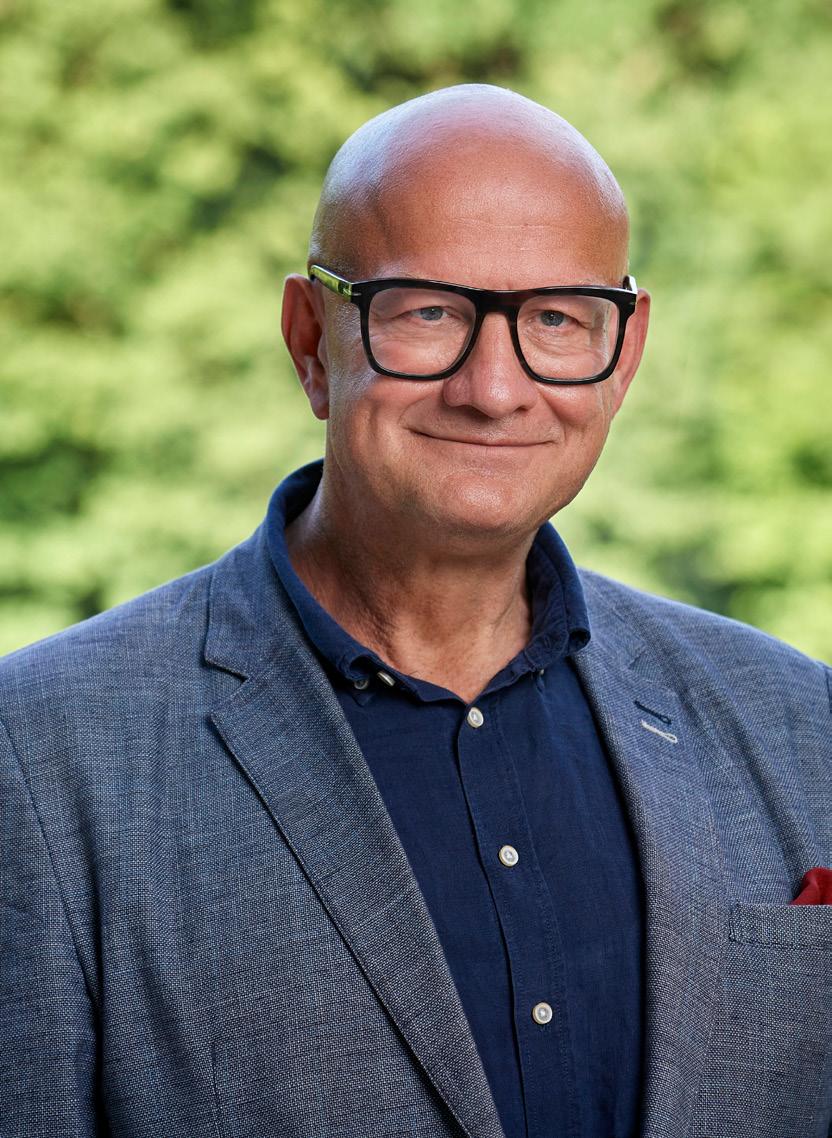
"Peoplespotter" Jörg Peter Krebs has been on the road for Switzerland for over 35 years. He is and has been in various positions at Switzerland Tourism. After years of work in Frankfurt, Madrid and Hamburg, he was responsible for marketing in Zurich and later for all national communication for the EURO 2008 football tournament. As he is also a developer, he was drawn to Dubai to reposition and to expand the markets of the Gulf States and India. After five years, he returned to Frankfurt in 2013 as Director for Germany, Central Europe and the Middle East, where he also lives. Recently, in an exclusive interview with CXO Outlook Magazine, Jörg shared his professional trajectory, the secret sauce behind his success, future plans, words of wisdom, and much more. The following excerpts are taken from the interview.
The biggest
industry in the
world
is
also the best and expecting you. Stay curious! Have fun! Decide! Be an entrepreneur! Never forget: the team is the star
best tourist (country) brands with an incredibly beautiful product.
Are there any significant differences between the marketing of products or places, such as destinations?
The biggest difference is “we do not sell directly”! When we reduce the customer journey to “Dream-Plan-Go” we focus on the first two phases. We do not have direct control over product sales (including pricing/yield,
steering, allotments). But we always have to look at the whole thing (the big picture).
Do you think tourism destinations nowadays make every possible effort to provide creative and innovative solutions to position their products, services, regions, or cities?
Smile…. It is like in sports. Some perform strongly, some surprise, and some need more training.
How has the use of technology and digitalization affected tourism promotion?
I can no longer imagine working without digital media (or who else can calculate and issue a flight ticket by hand...?). We can work much more precisely and more agilely and, above all, communicate with our customers (end customers as well as our trade & media colleagues). It is partly a very short-term business, which, thank God, has become quite transparent. But it requires resources. Human as well as financial. And of course, marketing and communication budgets have shifted significantly towards digital communication and live comm in the last decade.
Do you feel social media has changed tourism brands’ conversations with the audience/ visitors?
We have always tried to integrate the guest into our digital communication. It's no coincidence that our website is called "MySwitzerland. com" and has been for almost 30 years! Of course, we have to decide on a case-by-case basis which social media channels we use. AI also creates further opportunities.
How do you measure the effectiveness and success of your destination branding?
We do have different measuring instruments: e.g. a specific yearly survey about our brand called the Brand equity monitor. This year we also did a specific guest survey with 20’000 to 25’000 respondents. It is the largest national guest survey in Switzerland. The survey covers a wide range of topics, including sources of
information, tourist needs and activities, touristic strengths and tourist satisfaction.
What are the main challenges for your sector/category over the next 12 months?
To win back Europe! And mainly to win back Germany!
In 2018, you were honoured with the "Lifetime Achievement Award" at the German Location Awards. Our readers would love to know the secret sauce behind your success.
A German professor once said: nothing makes you more successful than making others successful...
What’s a productivity tip you swear by?
Honestly I am not always productive, for me it is the old teaching of Management by Exception. Subsumised it is: Trust in the team, in their work and in the decisions they make themselves. And with all the daily business one should plan generously in advance.
Where do you see yourself in the next 5 years?
Maybe as a mentor and coach for young talents. And preparing my next “3-month-road-trip”….
One piece of advice you would like to share with aspiring professionals from your industry. The biggest industry in the world is also the best and expecting you. Stay curious! Have fun! Decide! Be an entrepreneur! Never forget: the team is the star.
Maliha Aqeel, Founder & CEO, The Ideas Collective & Chair, International Executive Board, IABC
Please tell us about your background and areas of interest.
I started my career right after high school as a freelance features writer for a magazine in Dubai, UAE. Over time, I expanded my services to include scriptwriting for corporate videos and TV productions and writing and designing client newsletters and promotional collateral. I didn't have a clear plan for pursuing a career in marketing and communication. However, I found
myself intrigued by what makes people choose one brand over another, especially when there's little difference between similar products or services. During university, I took a few advertising courses, and they gave me a better understanding of how powerful brand experiences and storytelling can drive business objectives.
Over the last 20 years, I’ve worked in agency and corporate roles, have been responsible for PR and corporate communications, started thought
I absolutely love the balance of strategy and creativity in my work, which keeps me going in this field

Maliha Aqeel, PMP, SCMP, MC, is the Founder & CEO of The Ideas Collective Inc., an independent strategic consultancy in Toronto, Canada. She has worked in corporate and agency roles for 20 years, connecting the dots between brand, marketing and communications to drive business objectives. A well-connected global professional, she is Chair of IABC’s international board of directors. Her work has won several industry awards, including two IABC Best of the Best for employee engagement and COVID-19 crisis and response management. In 2021, Maliha was named IABC Canada’s Master Communicator for her contributions to organizational communication. She’s pursuing a doctorate at Royal Roads University, and her research focuses on social purpose brands. Recently, in an exclusive interview with CXO Outlook Magazine, Maliha shared her professional trajectory, the inspiration behind establishing The Ideas Collective, the top qualities required to become successful entrepreneurs, future plans, pearls of wisdom, and much more. The following excerpts are taken from the interview.
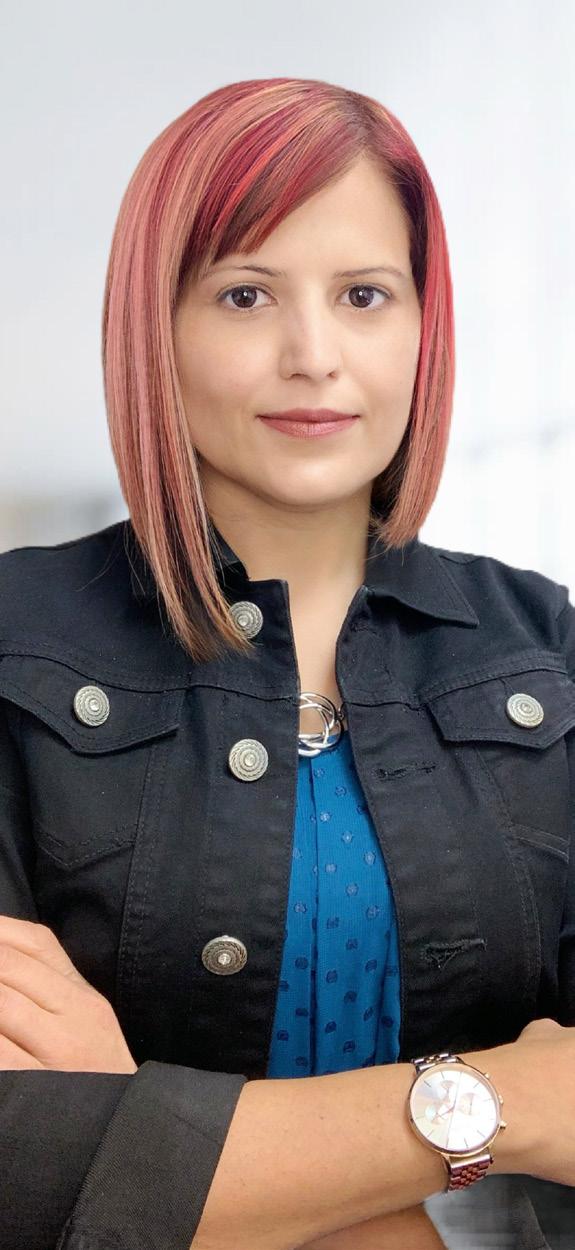
leadership programs from scratch, and developed or refreshed several brands, from identity to strategy. I absolutely love the balance of strategy and creativity in my work, which keeps me going in this field. One of my primary areas of interest is purpose-driven brands. I’m pursuing doctoral research in this area because I believe sustainable business strategies informed by social purpose can address systemic issues and create value for all stakeholders and society.
What was the inspiration behind establishing The Ideas Collective? What sets it apart from other market competitors?
The Ideas Collective was inspired by a conversation I had with someone that the best ideas come from collaboration and co-creation. I was still working in a corporate role at the time but was seriously considering returning to consulting life. I interviewed with a few agencies but soon realized I was more interested in bringing to life my vision of the ideal consulting partner for corporates like me. As a senior executive in global matrixed organizations, one of my biggest challenges when hiring outside consultants was that they didn’t always understand the complexities of corporate life, navigating politics and the multi-layered process for moving a project from ideation to business case approval to execution. What sets The Ideas Collective apart is that we have worked as in-house advisors and strategists with direct experience managing vertically and horizontally. We use that expertise to collaborate with our clients and co-create the right solutions for their business. We’ve been in our clients’ shoes and know how to help them socialize their business case for change.
Due to my interest in social purpose, I also wanted The Ideas Collective to be a purposedriven brand from its inception
Due to my interest in social purpose, I also wanted The Ideas Collective to be a purposedriven brand from its inception. This means being thoughtful about the kinds of consulting projects we undertake and the brands we work with. Our brand purpose is “to elevate socially conscious brands so they can do their part to transform our world.” Customers, employees and many shareholders expect brands to use their resources to address complex societal issues through sustainable solutions. Therefore, we’re interested in supporting brands with a sustainable business strategy, a social purpose and a strong commitment to operating and growing in a socially responsible manner to engage meaningfully with their stakeholders and demonstrate their positive societal impact.
You are Chair of the International Executive Board at IABC. Can you please tell us about this network and your role in it?
IABC is a global membership association for communication professionals and has a presence in North America, Europe, Africa and Asia Pacific. I joined the association after I moved to Canada because I wanted to connect with like-minded professionals in a new country, build my network and help find jobs. I found volunteering the best way to achieve my goals, and I have served on local, regional and international committees and boards for over a decade. In 2019, I joined the global board of directors and was elected Chair last year. As Board Chair, I’m responsible for leading the governance of the association, working with my fellow board members to provide oversight of our strategic plan, and collaborating with our staff to deliver value to our members and volunteer leaders.
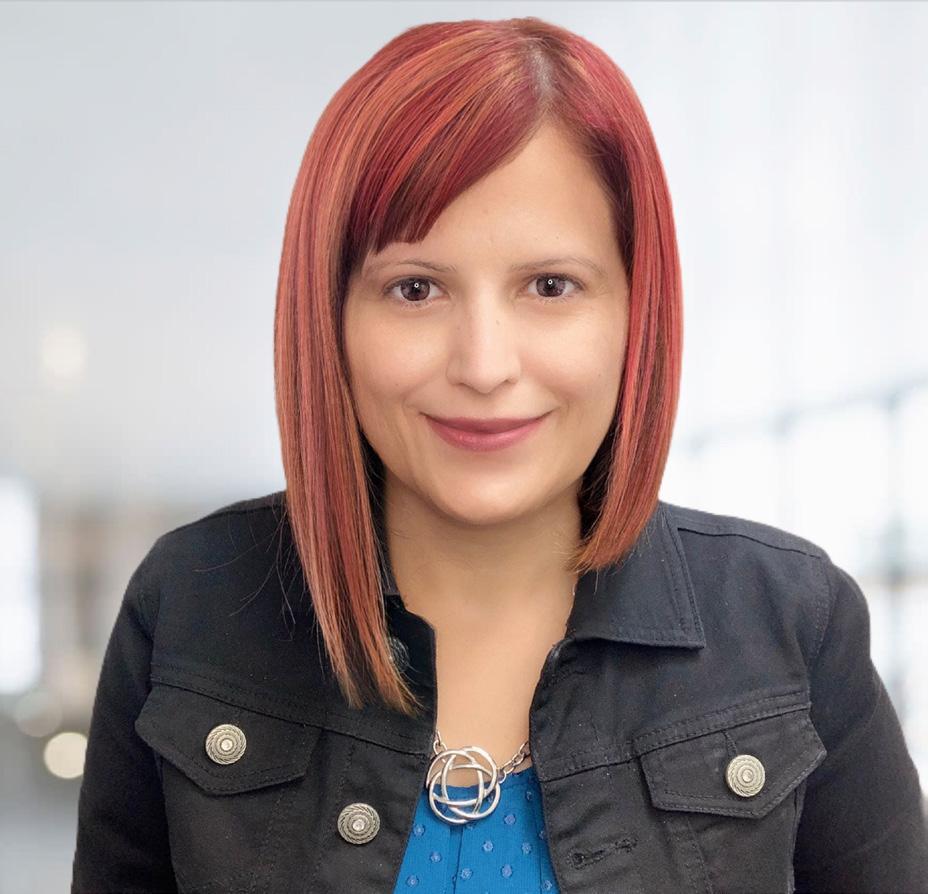
Being an entrepreneur is not for the faint of heart. It requires tremendous sacrifice and being comfortable with uncertainty
IABC is my community in the real sense of the world. I’m connected to communicators from around the world with whom I can share best practices, learn from the experiences of others globally and give back to the profession. IABC’s purpose is to “use the power of communication to deepen understanding, inspire action and transform our worlds.” This purpose resonates with me and what I believe is the value of professional communication.
What are the top qualities or skills you believe entrepreneurs need in order to be successful?
Being an entrepreneur is not for the faint of heart. It requires tremendous sacrifice and being comfortable with uncertainty. Therefore, resilience, adaptability, and a strong sense of purpose are essential qualities for anyone considering entrepreneurship. Resilience helps you to recover from setbacks that are bound to happen in any venture. Adaptability means being open to change and being ready to adjust your approach based on what you’ve learned from your experience. This might involve changing your product, service, or business model. Make the executive decision to pivot quickly because there’s a short runway for experimentation. Lastly, a strong sense of purpose helps you stay focused on why you started your business in the first place. Your passion and vision drive you forward, inspire your team and attract customers. As an entrepreneur, you should be able to confidently answer the question, “Why you?”
If you could have a one-hour meeting with someone famous who is alive, who would it be and why?
Many years ago, I picked up Simon Sinek’s book, “Start With Why, " which changed my perspective
on how brand purpose can be a competitive differentiator. His work inspired by my interest in purpose-driven brands and purpose-driven leadership. I follow him on social media but would love to meet him someday and have an intellectually curious conversation about myriad topics.
Is there a particular person you are grateful for who helped get you to where you are?
I am grateful to my parents for always supporting my ambitions and letting me believe I could do whatever I set my mind to. I couldn’t do what I do without the supportive environment that my family provides. They are my personal cheer squad!
During my career, I’ve also been fortunate to have had many mentors and sponsors who supported me, gave me advice and opened doors of opportunity. Sponsorship is incredibly valuable and essential for advancement in the workplace, especially for women.
does the term "authentic leadership" mean
Authentic leadership is all about leading with honesty, sincerity, and compassion. It means staying true to your values and beliefs and letting them shape your approach to leading others. A true authentic leader is self-aware and acknowledges their own strengths and weaknesses. I’ve always believed that authentic leaders recognize their limitations and their superpowers. They are authentic in their interactions and build trust by being consistent in their words and actions. This approach helps create a positive, open workplace culture where everyone feels
valued and motivated to give their best. At the same time, they are open to feedback and adjust their words and actions to improve the team and culture.
How have you kept yourself motivated in difficult times? Have you developed any new skills, or a focus on personal well-being?
Staying motivated during difficult times has required me to apply a combination of selfcare, kindness to myself and others, and embracing new opportunities as a chance to learn and grow. The saying, ‘control what you can control,’ is apt in these situations. I have learned the importance of acknowledging the challenges without being too hard on myself, as this approach helps me navigate through challenging phases more easily. Additionally, I have focused on my personal well-being by setting aside time for activities that rejuvenate me, such as reading, writing, spending time with my family and doing things that interest me. On the professional front, I have viewed challenges and setbacks as opportunities to develop new skills or deepen my knowledge in my field and other areas. Every year, I plan what topics I want to learn more about and find ways to deepen my knowledge and experience. This planned approach adds to my abilities and keeps me engaged and forward-focused.
are your plans for the future?
My focus for the next five years is twofold: first, continue to work on my doctoral research about social purpose and customer
engagement in the hotel industry; and second, grow and scale my consultancy to help brands become purposeful. I’m also working on a book proposal about purposedriven marketing and communication, leveraging some of the desktop research I’ve done for my academic studies and adding practical guidance and examples that can help brands and their marketing teams bring that purpose to life.
What is your advice for newbies who are looking at building a career in your industry?
For those who are new to marketing and communications and our industry, my suggestion would be to start with a learning mindset. Curiosity is key, so don't hesitate to ask questions and absorb as much knowledge as possible. Networking is also essential. Establishing relationships with peers, mentors and other industry professionals can help you discover opportunities and receive valuable support and guidance. When I moved to Canada, I had to rebuild my network from the ground up, and it was daunting at times. However, it was also necessary. The effort netted results in the long term, and now I try to pay it forward. Also, don't be afraid to take risks or make mistakes—each setback is an opportunity to learn that brings you closer to your objectives. I mentioned before about adaptability as an entrepreneur. Marketing and communication are rapidly evolving fields and require professionals to be able to pivot, embrace change and navigate ambiguity.


FOUNDER AND CEO OF AGENCY 6B
Imagine this: a high schooler with a knack for technology, spending her afternoons building websites for lawyers and local businesses. Yes, that was Victoria Reitano, or as she's affectionately known, Vix, nearly 20 years ago, way before 'digital marketing' became the buzzword it is today.
Back then, businesses were dipping their toes into the world of Google and display banners, and Vix was already riding that wave. Fast forward a bit, and she's not just navigating the digital landscape but mastering it. Starting her career as a journalist, she learned the art of
making complex ideas digestible —a skill that would later shape her approach to marketing and advertising.
But it wasn't until 2015 that Vix took the leap from side hustle to full-time entrepreneur. Six weeks. That's all it took for her to turn her passion for marketing and advertising into a thriving consultancy, Agency 6B. Her strategy? "Divide your network into three groups: past clients and contacts who might hire you directly, contacts who might refer someone from their network, and followers who are willing to share your work," explains Vix.

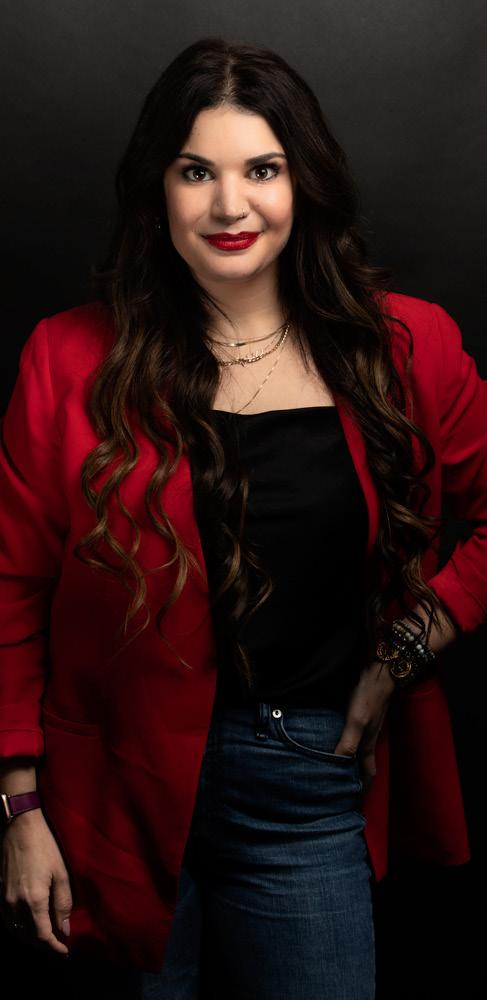
By mid-July 2015, she was matching her six-figure salary, officially launching Agency 6B and setting the stage for her Forbes NEXT1000 Founder recognition in 2021. Reflecting on this milestone, she recalls her journey from a 27-year-old with big dreams to a recognized leader in her field.
But what's truly inspiring about Vix's story isn't just her professional success—it's her commitment to balance. She began as a single, childless professional when she set out to create a better work-life equilibrium for herself and her clients. Today, she continues to leverage the systems she created as she returns to work after giving birth to her daughter in February of 2024. And that recognition from Forbes? It's not just a pat on the back; it's proof that balance is achievable, even in the fast-paced world of entrepreneurship.
Let's explore the realm of brand awareness and cash flow through the lens of Vix's Lead Generation Funnel (LGF) Framework at Agency 6B. Picture this framework as the trusted companion, guiding businesses to harness their existing client base or network, elevating brand visibility and revenue in swift strides.
How does it operate? Well, Vix has it all figured out. She's crafted a mix of marketing magic—think email campaigns, social media strategies, and good old-fashioned sales outreach—to uncover hidden treasures within your current client list.
But this is merely the inception. The LGF Framework extends beyond mere discovery; it's about constructing a system to perpetuate the flow of prosperity. Through consistent feedback gathering and review collection from past patrons, Vix ensures businesses not only operate seamlessly internally but also radiate allure in the eyes of the public.
"The entire purpose of the framework is to increase brand awareness organically," Vix elucidates. And she's not merely paying lip service. With the LGF Framework, reconnecting with former clients becomes a breeze, freeing up resources to concentrate on delivering exemplary products and services.
Here's the crux: this framework isn't a onesize-fits-all solution. Whether you're a nonprofit entity making waves at the United Nations or a fashion stalwart like Cohen’s Fashion Optical, Vix has tailored solutions for all. She customizes the LGF Framework to align with your distinct business objectives, ensuring tailored outcomes.
Moreover, Vix acknowledges the variance in bandwidth across teams. "The most important difference between working with founders and small teams versus corporate leaders and larger teams is the bandwidth each team has to put in the manual work required to complement the automation systems we implement," she
Through consistent feedback gathering and review collection from past patrons, Vix ensures businesses not only operate seamlessly internally but also radiate allure in the eyes of the public
asserts. Translation? She'll meet you where you're at, ensuring the LGF Framework fits seamlessly into your workflow.
So, whether you're a small startup or a corporate giant, Vix's LGF Framework is your ticket to success. With her adaptable approach and knack for understanding your needs, she's here to help your business grow and thrive in even the toughest markets.
Not all brands sell products or services; some sell their ability to move their audiences to take specific actions. This is often referred to as influencer marketing, but it is also how editorial brands like magazines and news organizations generate revenue. Vix excels in this space, from influencer marketing to editorial brand strategies. She orchestrates campaigns that deeply resonate with audiences.
Take her collaboration with Out Leadership, for instance. Here, the goal wasn't just to attract attention but to ignite a movement. By leveraging her EIC Framework — Educate, Inform, Convert — Vix crafted content that not only informed but transformed, rallying audiences to embrace educational programs and participate in newsletters and webinars.
Then there's her partnership with the Education Commission through Gordon Brown’s office at the United Nations—a global endeavor aimed at launching a brand across multiple platforms, from social media giants like WeiBo and WeChat in China to the hallowed halls of the UN General Assembly. With a blend of paid

Whether you're a small startup or a corporate giant, Vix's LGF Framework is your ticket to success

ads, influencer partnerships (yes, even Shakira got in on the action!), and real-time engagement, Vix spearheaded a campaign that echoed the urgency of funding global education effectively.
But Vix's prowess doesn't stop there. At The Ad Council, she deftly wielded YouTube as a tool to amplify public service campaigns, optimizing tags and upload schedules to ensure maximum impact for each initiative. And when faced with the unprecedented challenge of producing a commercial for Cohen’s Fashion Optical amidst a pandemic, Vix rose to the occasion. "We made sure to include enough footage for future use after restrictions were lifted," she says. This campaign aimed to increase appointment bookings despite COVID-era restrictions on brick-and-mortar businesses, showcasing Vix's ability to adapt to challenging circumstances and deliver results.
Vix's passion lies in partnering with brands poised for expansion and organizations seeking to harness the power of AI and automation. Her mission? To pave the way for sustainable growth while ensuring a harmonious work-life equilibrium for both businesses and their employees.
"I love helping organizations figure out where AI and automation fit into their existing business," Vix shares. And indeed, her enthusiasm is contagious. With a keen eye for efficiency and innovation, she guides businesses towards streamlined processes that enhance productivity without sacrificing the human touch.
Vix's passion lies in partnering with brands poised for expansion and organizations seeking to harness the power of AI and automation
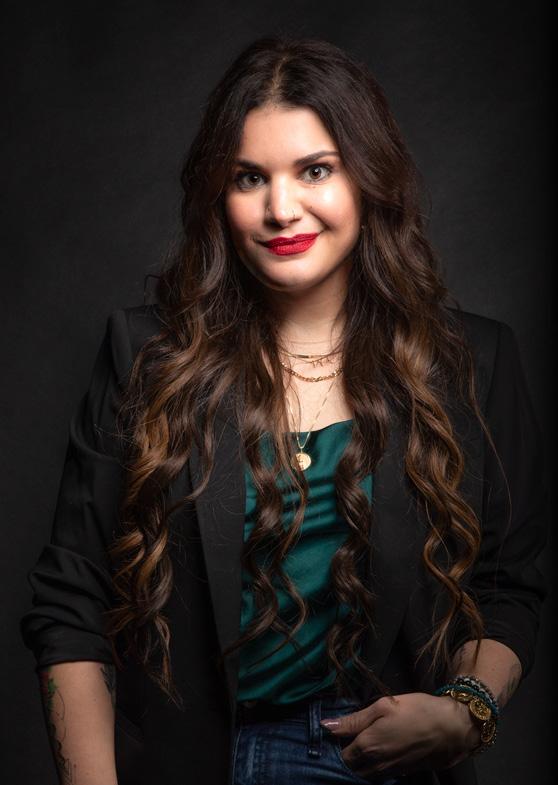
Looking ahead, Vix's aspirations are clear: to catalyze sustainable growth for small and medium-sized enterprises. She's committed to effecting change through swift yet impactful transformations, driving revenue growth and market exposure while fostering more manageable internal systems for her clients.
"Marketing and advertising strategies do not have to be complicated to be effective," Vix asserts, echoing her belief in simplicity as the cornerstone of success. Her approach is pragmatic, grounded in the belief that small, incremental changes can yield significant results.
But Vix's vision extends beyond individual businesses; it's about effecting widespread change. By simplifying marketing and advertising, she aims to empower businesses of all sizes to thrive in the cutthroat landscape of commerce. Through her focus on sustainable growth and efficient systems, Vix seeks to empower a new generation of leaders to navigate the complexities of the modern marketplace with confidence and resilience.

Julien Rio, AVP International Marketing, RingCentral
n the realm of customer service, contact centres have long stood as the frontline of communication, bridging the gap between businesses and their clientele.
Traditionally, these centres functioned from physical locations, where teams of agents manned phones, responding to a barrage of customer queries. This setup, while efficient in theory, harbored inherent limitations that stemmed from its very structure.
The physical proximity of contact centre staff to each other, paradoxically, did not translate into effective collaboration across the company's various departments. More often than not, these teams operated in isolation, siloed within different offices or scattered
across various floors. The architecture of these traditional centres—geared towards maximizing productivity—discouraged agents from leaving their stations to seek out information. The quest for answers, especially for complex customer inquiries, was a cumbersome process, heavily reliant on the internal ticketing system. Agents, when faced with challenging questions, would log tickets, providing as much context as possible in hopes of receiving a helpful response within a predetermined time frame. This method, however, was far from conversational. It was a one-way street of communication, devoid of the personal interaction and deeper understanding that comes from direct
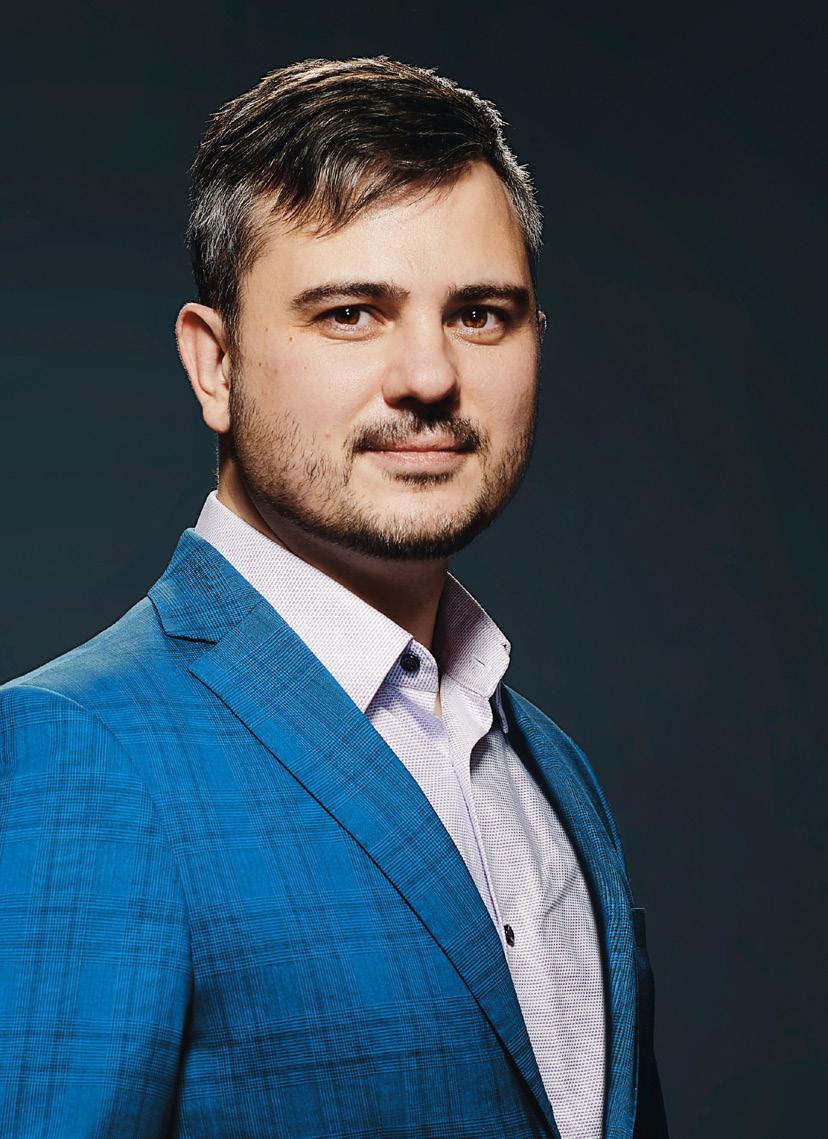
Julien Rio, a Certified Customer Experience Professional (CCXP) and AVP of International Marketing at RingCentral, is a renowned figure in the CX world. Julien is the founder of CX Therapy, a vlog that delves into real-world customer experiences, and the author of "Customer Experience Unearthed." Recognized for his contributions, including being named among France's top marketing influencers, Julien's passion for storytelling and customer engagement marks him as a respected leader in the field. As a founding member of the European Customer Experience Organization (ECXO), he continues to influence and inspire with a commitment to advancing customer experience.
The onset of the pandemic served as a catalyst for change, accelerating the shift towards remote work
dialogue. The agents and the responding employees remained faces behind screens, their interactions limited to the transactional exchange of information.
The onset of the pandemic served as a catalyst for change, accelerating the shift towards remote work. Contact centres, like many other facets of business operations, had to adapt swiftly. Yet, this transition to working from home did little to alter the fundamental way in which contact centres interacted with other departments. The silos remained, as did the reliance on the impersonal ticketing system. However, this period of upheaval also presented an opportunity to reimagine the traditional contact centre model. It set the stage for the emergence of the Collaborative Contact Centre—a concept that would leverage technology to break down barriers, fostering a culture of open communication and teamwork across the entire organization.
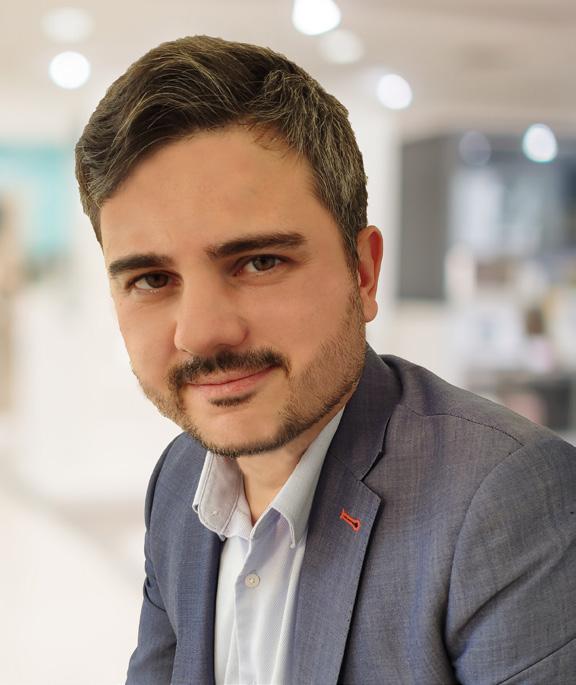
The underlying technology that enables the Collaborative Contact Centre is predominantly cloud-based, ensuring flexibility and scalability
The Collaborative Contact Centre represents a paradigm shift in the way customer service is delivered. At its core, this model champions the integration of Unified Communication (UC) and Contact Centre (CC) tools into a singular, cohesive platform. This fusion facilitates a seamless flow of communication, not just between the contact centre agents and customers, but across the entire organization. It dismantles the traditional barriers that once compartmentalized departments, encouraging an environment where information and expertise are shared freely and efficiently.
In this innovative model, the cumbersome process of logging tickets for internal queries becomes obsolete. Agents are now empowered to initiate direct conversations with peers in other departments, enabling real-time dialogue and collaboration. This shift from a ticket-based system to a conversation-driven approach marks a significant evolution in internal communication dynamics. It ensures that customer service representatives are no longer isolated figures, siloed away from the rest of the company. Instead, they become integral connectors, bridging various facets of the organization with the common goal of enhancing customer satisfaction.
The underlying technology that enables the Collaborative Contact Centre is predominantly cloud-based, ensuring flexibility and scalability. This cloud infrastructure is indifferent to geographical locations and working arrangements, thereby supporting a diverse range of company models—be it onsite, hybrid, or fully remote. By centralizing communication tools, agents are afforded a
unified interface that simplifies interactions both with customers and within the company. This streamlined approach not only enhances efficiency but also enriches the quality of service provided to customers.
The transition to a Collaborative Contact Centre model not only transforms the landscape of customer service but also brings with it significant operational benefits that touch every corner of the organization.
For Customers: One of the standout advantages of this model is the improvement in First Contact Resolution (FCR). By enabling agents to receive and relay answers more swiftly through direct conversations with colleagues, customers benefit from faster and more accurate responses. This efficiency not only boosts customer satisfaction by addressing their needs promptly but also reduces the volume of inquiries. A higher FCR rate means fewer customers need to make follow-up contacts regarding the same issue, leading to a noticeable decrease in the overall number of inquiries. This streamlined approach to problem-solving reflects positively on the customer's perception of the company, fostering loyalty and trust.
For Agents: The collaborative model has a profound impact on agent satisfaction and retention. The traditional challenges of recruiting, onboarding, training, and ramping up new agents represent significant costs for contact centres. By fostering an environment where agents feel a strong sense of belonging and are happier in their roles, thanks to more meaningful work and greater flexibility, the model directly contributes to higher retention
By situating the contact centre as a central hub within its operations, a company can more effectively streamline its strategies and processes around the customer experience
rates. Happier agents are more engaged and productive, which in turn benefits the company not just through reduced turnover costs but also by creating a more experienced and knowledgeable team to represent the company to customers.
For the Company: At its core, the Collaborative Contact Centre champions a customer-centric culture that is invaluable in today's competitive business environment. By situating the contact centre as a central hub within its operations, a company can more effectively streamline its strategies and processes around the customer experience. This strategic alignment goes beyond enhancing customer satisfaction; it catalyzes operational efficiency and fosters innovation across the board. Furthermore, the model's emphasis on agent satisfaction and retention translates into a more stable, skilled workforce, reducing the financial and operational burdens associated with high turnover rates. The cumulative effect of these benefits underscores the model's role in driving not just customer-centricity but also long-term business success.
The Collaborative Contact Centre model, with its focus on direct communication, cloud-based flexibility, and unified platforms, stands as a testament to the evolution of customer service. It acknowledges and addresses the modern customer's need for swift, accurate, and personalized service, while also recognizing the human element behind every interaction. By enhancing both the customer and agent experience, it sets a new standard for what effective, efficient, and empathetic customer service looks like in the digital age.





Michael Jacobsen, Founder, The Centre for Future Europe, International Business Leader & Advisor
Hi Michael. Please brief us about your background and areas of expertise.
I have been an entertainment impresario for 20 years both on the content side: Owning, producing and promoting concerts (Including legends such as Barbra Streisand, Sir Elton John and Bruce Springsteen) and theatrical events and also on the venue side: Developing and operating theatres, arenas and convention centres.
I have also acted as an advisor to various governments and governmental bodies aground
the world including in the UK, Slovakia, the EU and Australia. In these roles I have advised on national or local/city culture, creativity and innovation strategies.
I’m passionate about teaching and have been fortunate to have the opportunity to author two published books and be involved in TV as a host in addition to delivering lectures at various universities and speaking at major international gatherings including South By South West (SXSW) and others.
We work with partners and donors in order to undertake important projects in Central and Eastern Europe pertaining to culture and innovation
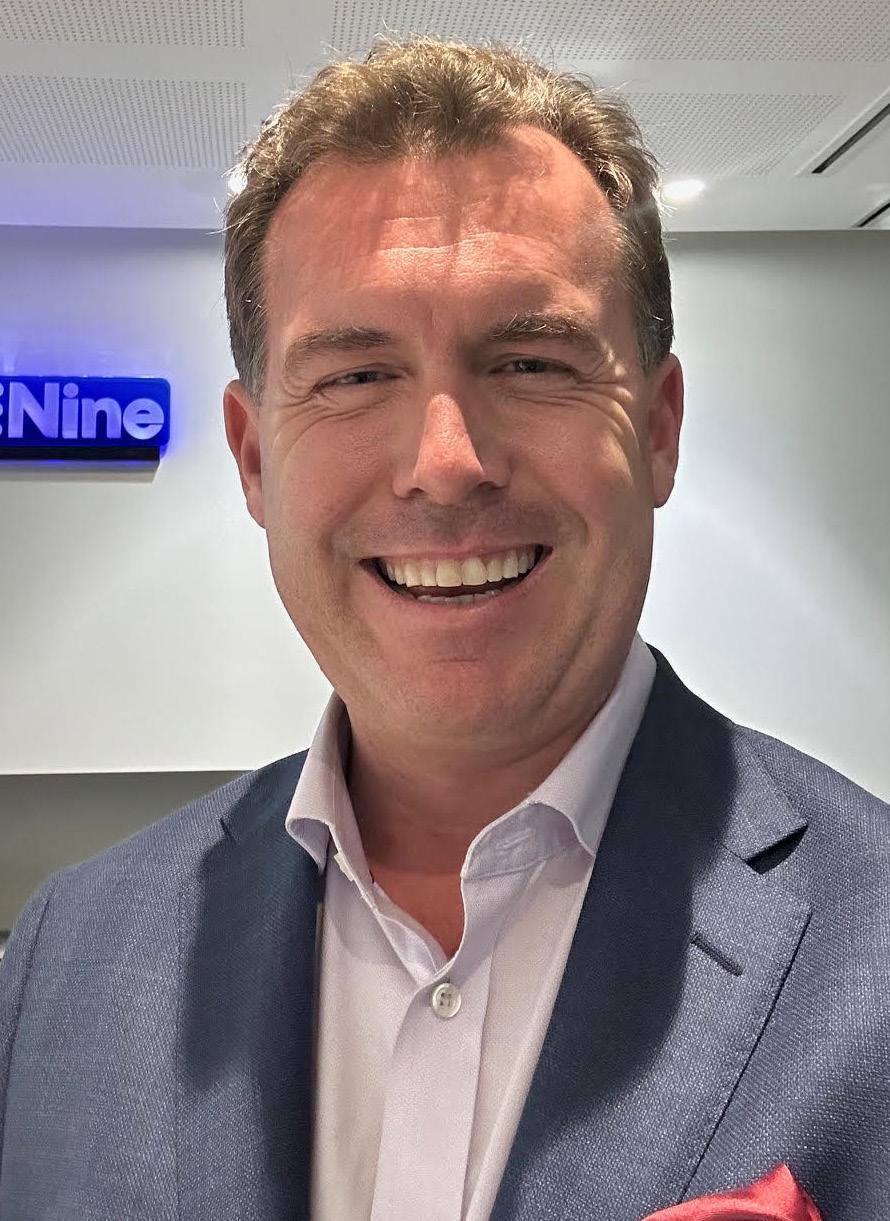
Michael is an Internationally respected leader in entertainment, media, arts and culture. He advises governments, cities and significant organisations on their cultural/creative and economic development strategies. Over the past two decades at the forefront of entertainment and leisure, Michael has founded major international entertainment companies which owned & produced content and others which developed and owned or managed leisure real estate for governments and cities.
Recently, in an exclusive interview with CXO Outlook Magazine, Michael shared his professional trajectory, the inspiration behind establishing The Centre for Future Europe, significant career milestones, his favorite quote, future plans, pearls of wisdom, and much more. The following excerpts are taken from the interview.
The greatest motivation for my team or any team is to pursue a vision. I articulate the vision and ensure everyone is behind it
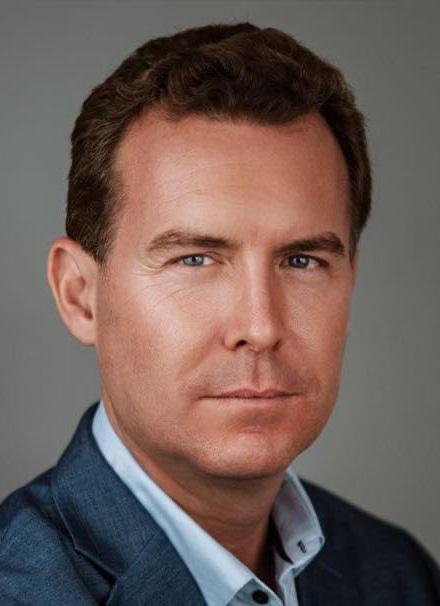
What was the inspiration behind establishing The Centre for Future Europe? Tell us about its mission and vision.
The Centre For Future Europe is a European based Non-profit with USA charitable registration. We work with partners and donors in order to undertake important projects in Central and Eastern Europe pertaining to culture and innovation.
You are a Strategic Advisory Board Member and Special Advisor of AVANEA and GLOBSEC respectively. Can you please tell us about these organizations and your role in them? Globsec is a large European NGO specialising in security and economics. I have advised them on certain cultural projects they have undertaken in Central and Eastern Europe.
Avanea is an impact fund registered in Luxembourg with its offices in Slovakia.Its major investments are in improving the world through innovative infrastructure technology. With many major international investors, my advisory board role covers the entire business but has also seen me build bridges between the company and the entertainment industry internationally.
What are the three major trends do you foresee in your industry in the next 12 months?
The entertainment and leisure sectors in particular are interesting because they benefit from technology disruption but also thrive in live analogue form.
Culture and entertainment will continue the trend of utilizing technology to enhance, scale and augment their offerings but live entertainment in the form of galleries, concerts and theatre will remain strong and stable.
Further, there will be an insatiable appetite for content as we continue to consume content in various mediums and into the future as work from home, smart cities and 4-day work weeks take shape in various forms.
What has been your career highlight so far? Why do you love what you do?
I was fortunate to act as advisor to the Minster of Economy in Slovakia during its previous EU presidency period. This has been a truly rewarding period of time.
Additionally, publishing two books and having the opportunity to host a TV show have also been privileges for me.
I was also fortunate to be the Co-Owner and Producer of Dirty Dancing-which played in many cities across the world for over 20 years.
And conversely, what has been your biggest learning curve or difficulty to overcome?
Let me say this instead as a piece of advice. Stick to what you feel called to do.
If you deviate from your calling things will not flow for you as well as when you stick to what you heart tells you. I have experienced this with certain businesses I have been involved in.
If you are starting out and feel that what is in your heart isn’t a clear job title or business, or doesn’t seem to you to be financially rewarding enough, or if you feel nervous about it:
Do not be discouraged: Step back and refocus on your calling and pursue it with extra courage: Being you is what you are best at and you’re better at anyone at being you!
If you could have a one-hour meeting with someone famous who is alive, who would it be and why?
I would love to spend time with Oprah Winfrey who I find to be someone of great note. She has an unquestioned status in media and pop culture but has used this as a platform to promote selfdevelopment which is a worthy goal and one which has elevated the world.
I would like to learn more about her intention to deploy her position in entertainment and culture for the good of the world’s citizens.
How do you keep your mind healthy and stay resilient? And how do you motivate your team?
I rise early in the morning which allows time for meditation and contemplation and to take ownership of my time and the day.
Controlling one’s mindset is vital and I use a number of spiritual practices to do so.
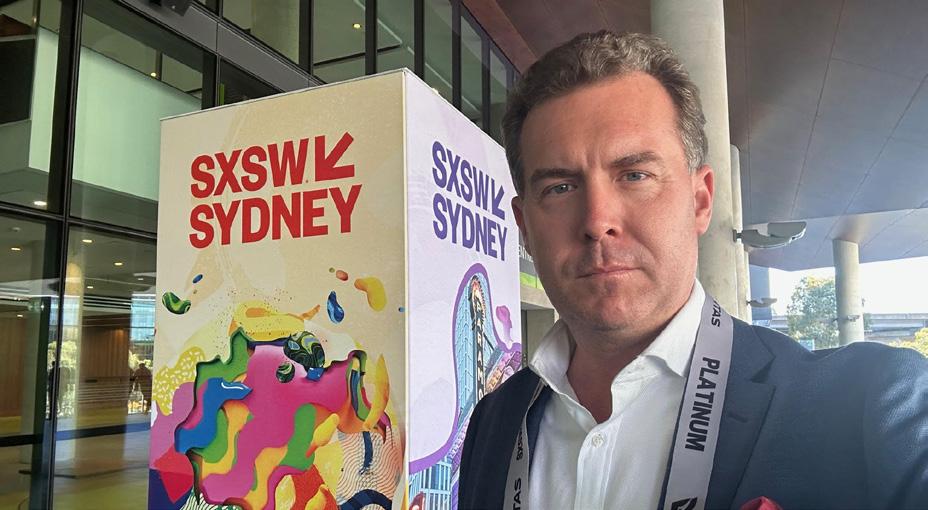
The greatest motivation for my team or any team is to pursue a vision. I articulate the vision and ensure everyone is behind it.
It is important to note that the vision is not for my glory and should not be just gratuitous or for the banal ‘success’ of the organisation-it should be connected to something noble and greater than one self or the organisation-something worthy or pursuing for the benefit of investors but also for the benefit of all stakeholders and society.
What is your favorite quote?
Be who you are and say what you feel because those who mind don't matter, and those who matter don't mind. DR SEUSS
Tell us about your future plans. Where do you see yourself in the next 5 years?
I have chosen to advise on culture and leisure to certain significant property developments; family offices; as well as a particular nation and City-State. This allows me the change to deploy the powerful tools of culture, creativity, entertainment and leisure in a strategic form which can deliver economic and social benefits for these major organisations and cities, and in turn allow them to enhance the lives of their citizens or stakeholders.
I plan to focus on these primary advisory roles, and I will also write more books and undertake media work.
What advice would you give to anyone starting out on their career in the cultural and creative sector?
Firstly, is important for those who are creative to embrace it and to release that creativity comes in all shapes and sizes. A Coder is creative; lawyers can be creative; surgeons can certainly be creative. So, embrace the cross-disciplinary nature of creativity.
To respond to your question more directly: People who wish to work in culture and creativity need to realise they are in one of the oldest pursuits on the planet. Culture and creativity defines and explains history; helps us make sense of the present; and adds colour to the experience of life.
Often those working in these sectors are led to believe they are undertaking work that is not financially significant or not important to the world in a real sense-the opposite is true and to think this is to misunderstand the notable qualitative and quantitative role played by culture and creativity.






